Sep 16 2015
World Rowing Masters Regatta: The Hazewinkel Report (longread)
The regatta in general
As expected
A classic Masters Worlds. Thousands of competitors. A race every three minutes. A very friendly atmosphere. Overall very good rowing. “Oldies disco” at the Masters Party. Lots of merchandise. Nerves. Lots of very enthusiastic volunteers (thanks guys!).
Better than expected
The weather (it remains Belgium after all). Food stalls accepting tokens purchased at a central place, thus almost no queues. Our accommodation’s very central location directly next to the finish tower. The food in the cafeteria (we had half board). The relaxed attitude of the organizers: you could come somewhat early for your bow number. Trailers could be left were you wanted as long as they didn’t block access to anything. The organizer’s responsiveness to complaints: After day 1 they regularly cleaned the duck poo from the docks.
To be improved
Duck poo on the docks on day 1. Overweight children on the starting pontoon causing damage to boats. The commentary was absent or uninspired. The top level of the boat racks was too high to reach for ordinary humans.
There was a headwind. 🙁
Next time I will refuse to tow an unknown trailer. We wanted to take my own trailer, but one of our teams made a last moment decision to take a four and use a bigger trailer. They convinced me that it would be inefficient to tow two trailers. I agreed, when it was time for my part of the towing (the Hazewinkel-Brno leg) I found out that this trailer is a bit too long and unstable for my car (even though it is supposed to be OK on paper). I ended up having to drive 80 km/h to avoid snaking, so the drive home took 14 hours.
The doubles races
As an experiment, I am going to tell the story by boat type, not chronologically. I think it is interesting to have the “similar” races close together. So here we go.
On Thursday afternoon we had our first race of the championship, the Masters B 2x, which I rowed with Radek, my regular double training partner. We have won easily in Hodonin and at the Masters Nationals, but I did not consider ourselves as victory candidates. Expectations for the race were to execute the race plan well, fight for a good place, and row a faster time than 3:35. This last requirement was a bit arbitrary, as I had no idea how the headwind would affect our pace.
The race plan was to row “at 90%” the first 500m, then do a 15 stroke push. The “at 90%” is not real, but I found out that Radek has a tendency to fly and die. What felt like a mild headwind at the finish turned out to be a quite strong head/crosswind in the starting blocks. Radek was constantly paddling to keep the boat pointing slightly into the headwind.
I think we rowed this race quite well and I am happy with the end result, even though it is not below 3:35. We did a good start, settled for race pace, and crossed the 500m in third position. In my memory, the Germans next to us disappeared into a strong lead immediately. We were rowing quite well in the pack. Our push worked, in the sense that it kept us in third place at a point where the British started to row away from us but the guys behind were trying to catch up with us. Our race was really about protecting our third place against the three boats behind us.
In terms of virtual medals, with our time of 3:43 there were 5 heats (out of 13) that were slower and we would have won, a few heats where we would be very close to the winner (and leading at 500m), and 2 heats where the finish time measuring system failed, but looking at the 500m times we would have been close. The very first heat of Masters Men B 2x actually rowed into the preceding heat of Women’s D 4+, resulting in an unmeasured time.
Radek’s parents have filmed our race, but it will take some time to get the files from the tape.
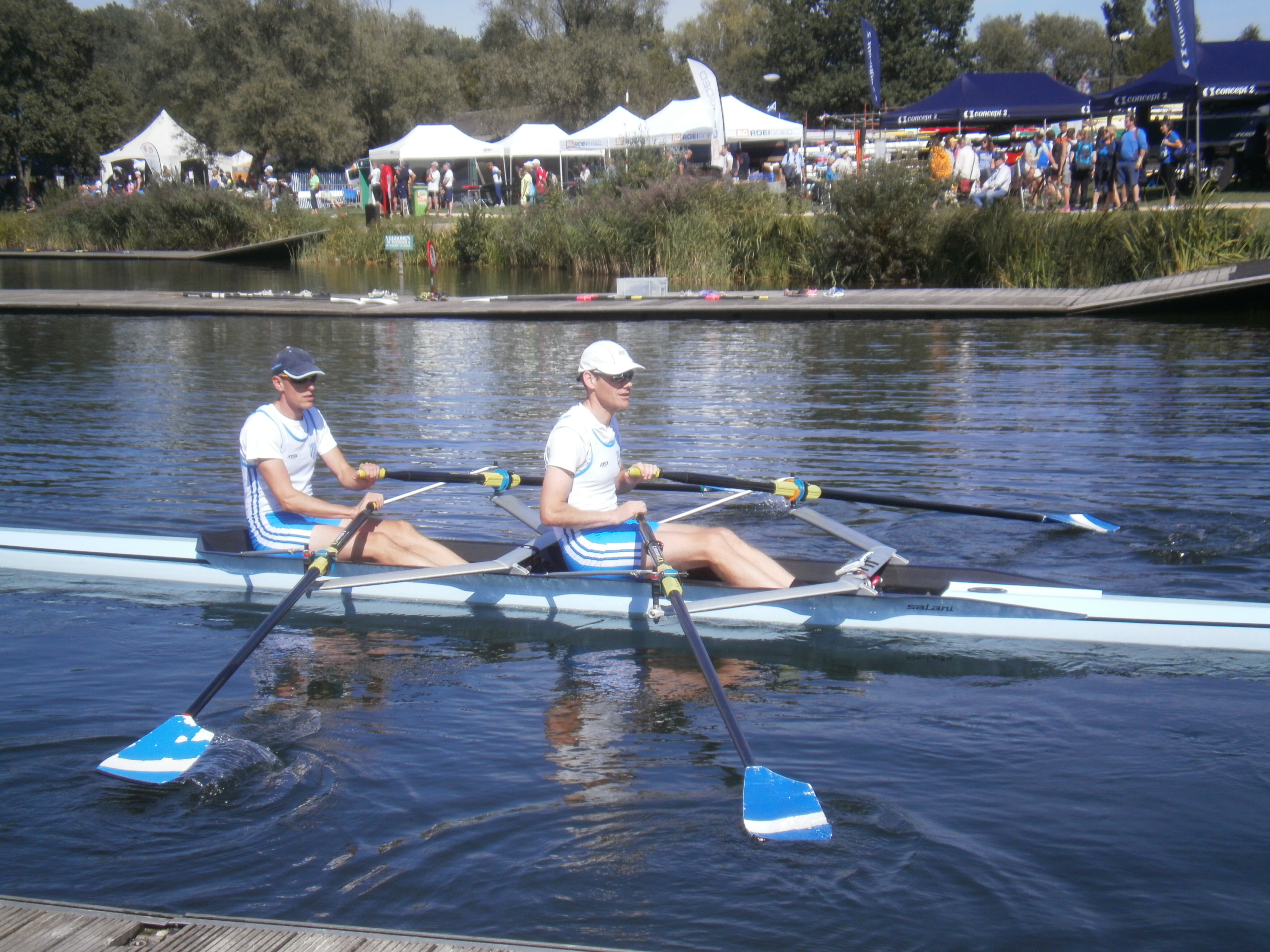
My second doubles race was on Friday afternoon, after the first quads race. This one with my old rowing buddy Arjan, with whom I have trained less than 20km together, 13km in one session earlier this year, and 4km on Thursday morning.
Again a head/crosswind. Perhaps slightly weaker than on Thursday. I wonder if there is an easy way to find old weather reports so I can check. Anyway, rowing on lane 6 which was less protected than the lower bow numbers. Again, I knew we couldn’t win this. We were up against Dynamo Moscow with Ovechko and Yurchenko. Ovechko is really fast and they won their race on Thursday (in an unmeasured finish time but giving us 10 seconds at the 500m mark). These Dynamo guys train like they participate in the Olympics, and actually many of them are former Olympians. Ovechko himself rowed the Lightweight 2x in Athens.
We had a very good start, especially given that we had practiced three starts in total. The Russians disappeared quickly but we were rowing in the pack.
It seems that most teams did a push with about 600m to go, because that’s where I noticed that we were losing ground. Unfortunately our 500m time is not recorded, but I think we passed with only 2 boats behind us, in 6th position. At the 500m mark I called for a push, and that brought us back in the field.
I didn’t actually end the push, but kept on rowing at the higher rate. Before the race I was afraid that my legs would be tired after the quads race, but all felt good. I have the CrewNerd data somewhere but didn’t look at them yet. I didn’t look at CrewNerd during the race but feeling wise I was doing 33-34 spm. In the second half of the race we managed to push away from the Germans and Peru behind us but we didn’t catch up with the Polish. Fourth place, right in the middle. The Russians won easily.
Compared to the other heats, our 3:35 time was not bad. There were four other heats where we would have won and 2 where would have been within a second. It’s a pity that the draw put us against those pesky Russians.
Pictures were taken by Arjan’s wife, but I haven’t received them yet.
The quad races
Two quad races, the Men Masters A 4x (Saturday) and the Men Masters B 4x (Friday morning). We have raced one race together, the Masters Nationals, where we took the silver medal. We have trained on our club boat, but decided not to take it to Belgium and borrow a boat from the Prague based club Slavia instead. I have rowed on this boat, the Sergej, in Varese, and it was good.
Unfortunately, when we took it for a short row on Thursday evening, we discovered that it is rigged too low (even at the highest setting) and I also suspect the height difference between the left and right oarlocks was not good. Having rowed Varese in bow, but now stroking the quad, I also found out that this boat has quite a big rudder, so in the practice I ended up bouncing from buoys to buoys instead of taking a nice center course down our lane.
So the Friday race was a painful event. We started off badly, rowed at the back of the field. The Italians took the lead, but as I had predicted they started to fall back already before half way. We struggled our way back into the field and passed the 500m mark in fourth place just before the Austrian Masters Nationals champions (rowing with one Canadian sub). Rowing at the high stroke rate usual in the quad and with the bad rigging, I really started to feel my legs giving up with about 400m to go. Last 250m was just pain. We finished fourth. All other heats were faster than us.
Our Saturday race was only 2 hours after my race in the single. So I sent the guys for a warming up run but decided to not join them, picking up the bow number instead.
When I arrived at our borrowed boat, I was approached by Slavia guy who told me that the rudder was broken. The boat is an older Vespoli and they have the rudder cables above the stern deck. Apparently, the rudder construction had hooked under the starting pontoon, and when it got lose, the entire rudder axis was at a backward angle of 10 degrees, leaving the stroke unable to move the rudder.
So there I was, alone, with my crew gone, and a broken boat. I chartered some people to help me put it in slings and contemplated how to quickly repair this. It seemed the only way was to take a pipe and to force pull the axis back in position, at the risk of breaking the little aluminium rod, which would leave us entirely without rudder. In the end we did just that and managed to get it back somehow. I tried to steer with the foot and I was able to get some response.
Rowing towards the start, I had some time to try out the “repaired” rudder. I had to use a lot of force to turn it and it had basically three positions: Ten degrees to the left, 30 degrees to the left, and 20 degrees to the right.
I spent the time waiting at the start explaining to the starting pontoon kid that I forbid him to pull the stern under the pontoon. In the end he had instructions to do it anyway but he promised to push the stern into the water at the starting signal. Also, he was a small, lightweight kid, so there was about 1 cm of space between the top of the rudder and the lowest point of the starting pontoon.
Bouncing from one side of the lane to the other we made our way to the finish. We rowed a slightly faster time than on Friday, with a slightly slower start. Still, 3:20 is slow for a quad.
My legs were trash during the entire race. Probably tiredness from the singles race and the two preceding days. This time the Austrians beat us on the finish line.
The singles race
This race was on Saturday morning, at 9:34. My only singles race. I didn’t know what to expect, not knowing any of the other competitors. I was super nervous.
Met Ben Redman when I picked up the bow number and we chatted a bit. He looked nervous as well. He rowed the race before me. I saw him doing his start and first 10 strokes, which looked mighty agressive. I was too far away to get wet, but it was quite splashy.
Fast out of the start. My plan was to do a push with 600m to go, as was the fashion on these championships. The expectation was that depending on the strength of the other guys, I would be either somewhere in the front or somewhere at the back.
First 400m of the race all boats were rowing on one line, but when I actually started my push, I was starting to fall behind with a few others. The result of the push was that I stayed “somewhere in the middle”.
In the second half of the race two boats started to fall behind by a lot, two boats passed me and I ended up dangling at the end of the pack. I decided to not save anything for the quad (knowing that was a badly rigged boat) and kept pushing to at least row a reasonably good time.
Comparing with the other heats, I would have ended up 5-10 seconds by the winner in most cases. One heat was slower than my time.
The mixed races
Sunday was mixed races day. At 11:30, we would start in the mixed quad in a rented boat from Filippi. In the end I was glad that Slavia wanted to return home on Saturday and couldn’t borrow us their boat, and I was looking forward to a nice Filippi.
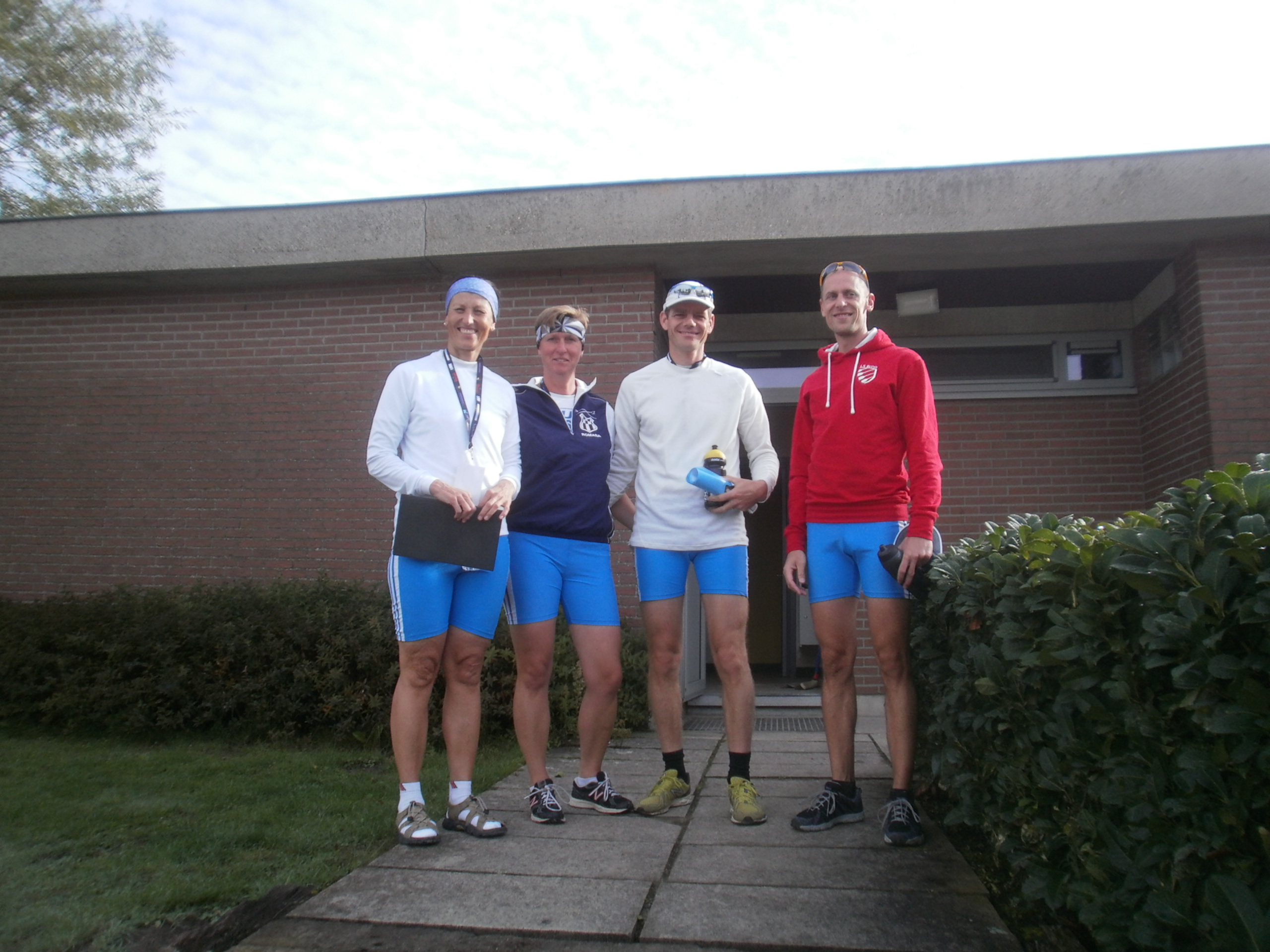
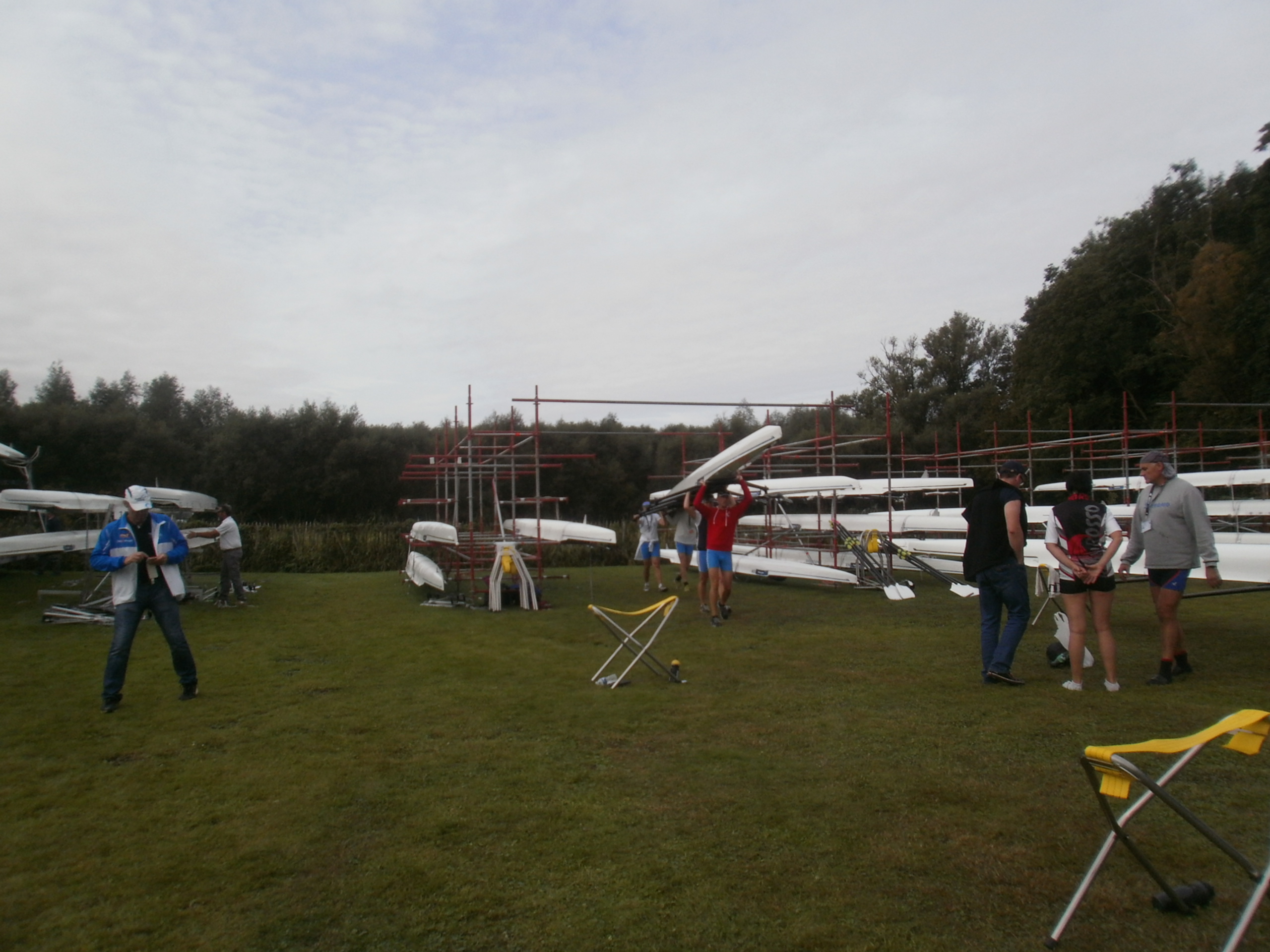
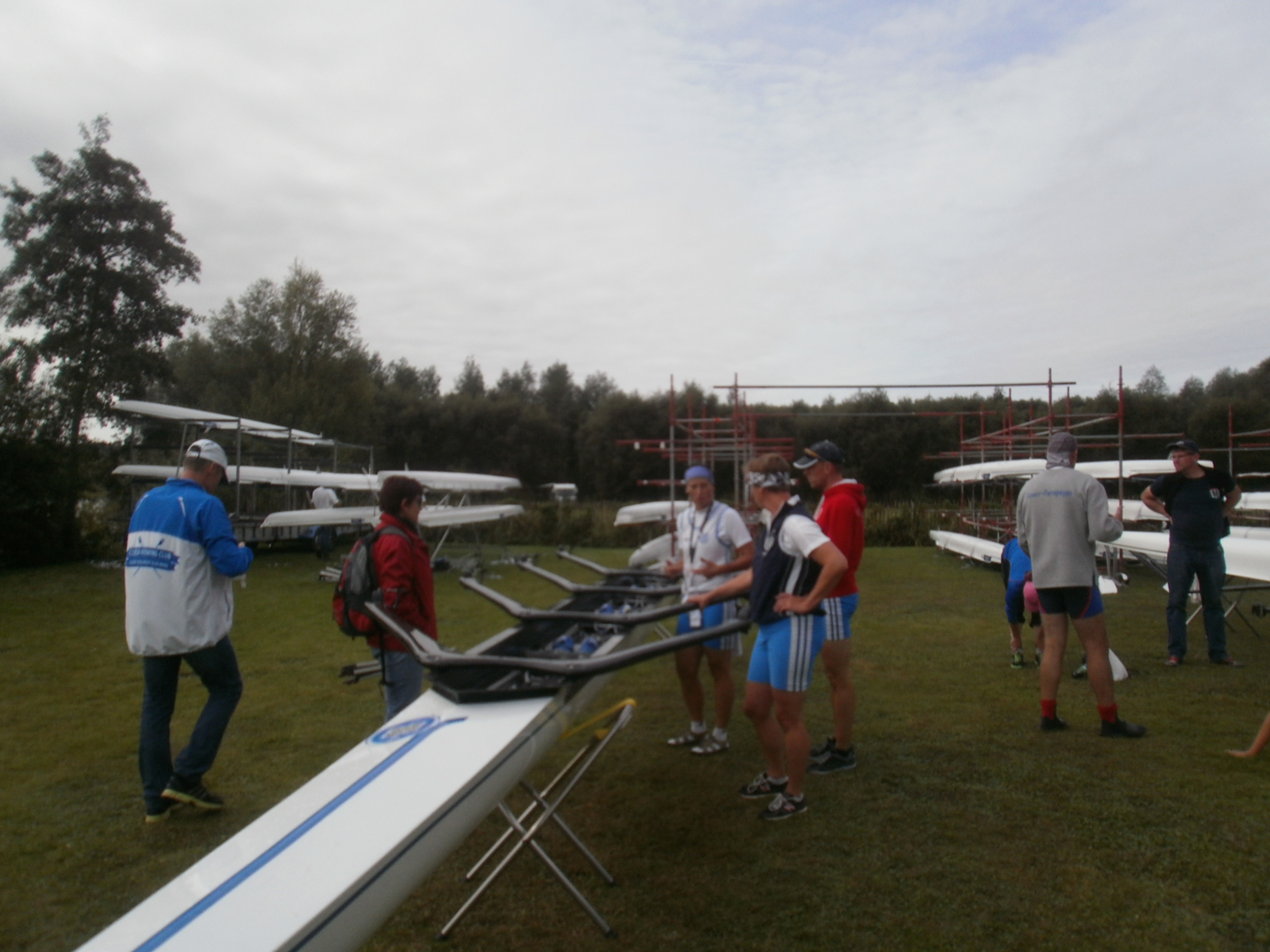
We arrived at the rental location early. Officially they don’t give you the boat until 30 minutes before the start, but as I know the German representative of Filippi, we got a VIP treatment and were told to chose any boat of our liking. In the pictures above we are looking for a good boat in our weight category. In the end we chose a quad with carbon front wing riggers, with CZE printed on the side. Apparently it has been used by a Czech team in the past. Unfortunately, we discovered that the bow ball was missing. As told above, I had friendly access to the highest boss of the boat renting business, who immediately sent an Italian guy to bring me a bow ball.
In the past, Filippi didn’t allow any rerigging of their rental boats. They were all rigged to the same rigging numbers, and the only thing you were allowed to move was the foot stretcher. This time they allowed to move sculls as well. So it was a nightmare to find four sets of sculls of approximately the same length. We ended up changing a few, but due to lack of time we couldn’t do more than set all scull lengths to 287 and inboard to 88.5.
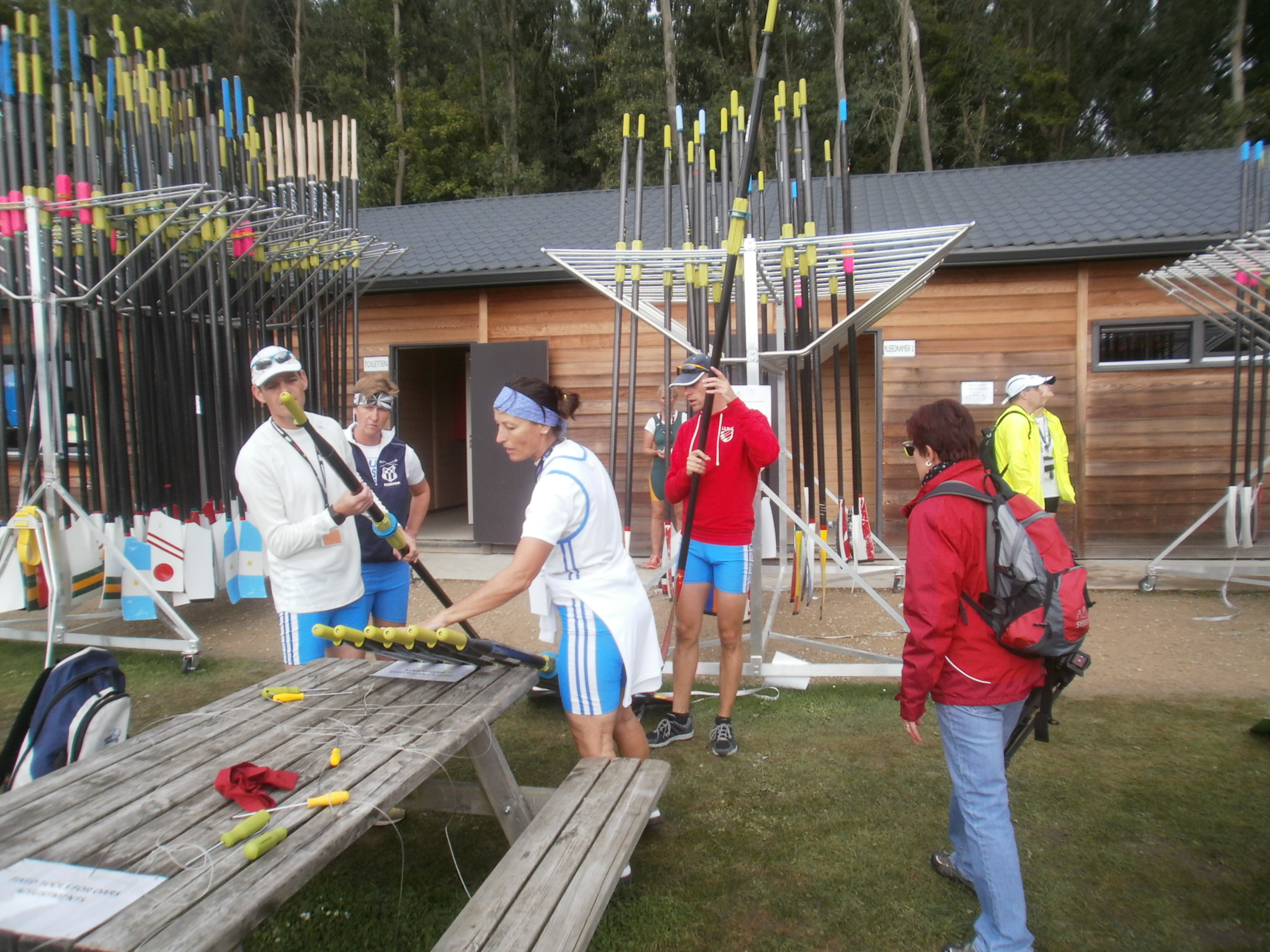
After all that stress we launched the boat. We arrived at the 2km point with 15 minutes to go before our official start, but somehow the referees kept urging us to go to the start immediately. It turns out they were trying to start the races ahead of the official schedule. I don’t know why, but I suspect some bad weather was approaching. It didn’t work out anyway because the Japanese team in the doubles race before us had a broken boat and were allowed 10 minutes to repair.
Light headwind at the start, but less windy than in the previous days. Both the Polish to our left and the British to our right looked very impressive. Compared to Radek’s 65kg and my 73kg their guys were definitely giants, and also their girls looked very athletic. I am afraid we looked underwhelming.
It was Lubica’s first international race since the W4x final at the Barcelona Olympics, and she was thoroughly enjoying it (and also admiring the strong guys in the other boats). The officials did a fast start “because of the weather” so it was Attention – honk and off we were. We had a fantastic start and were rowing right in front with the Polish and the British, and the Austro-Hungarian boat. One German boat was right behind us, followed closely by Chile. The second German boat closed the field.
With 600m to go we were starting to lose, so I called for a 15 stroke push. Lubice on 3 supported me by emphasizing a fast hands away and our stroke rate shot up to 36. In 15 strokes we were back in front. I focused on the steering and didn’t dare to look next to me too much, but I saw the sterns of the Polish and British in my peripheral vision.
With 400m to go I called for another push and I think we were briefly in the lead. The Polish started to push away and Romana, feeling a possible victory, called for a final sprint. In the final 250m I believe we rowed half a length behind the Polish and one or two meters in front of the British.
Honk – The Polish were in
Honk Honk – The British and us. I immediately knew they were a fraction in front of us. Must have passed us in the final three strokes. We cheered three Hurrays for the winners (a Czech tradition) and congratulated ourselves on a fantastic effort. Really a brilliant race. We were much better than we had imagined.
Radek’s parent have the final 250m of this race on video and I will certainly post it once I get my digital copy. With our time of 3:24 we would have been second in the second heat and could have easily won heats #3 and 4. :-/
We didn’t have much time to recover. The quads race was at 11:30 and it was delayed by 10 minutes. We had to row back to the 1000m to leave the boat at the Filippi boat rental. We walked/hiked the 1000m back to the finish, just to flush the lactate a bit. Then we had to immediately launch for our doubles race at 13:00.
Arriving at the start after such a thriller of a quads race, we didn’t expect to win. I told Romana we would race the boat that would end up next to us, just to enjoy a good fight. Next in the starting block was an Austrian mixed couple from Vienna who we know, so we wished them good luck and then concentrated on our race.
Again we had a brilliant start and to my surprise the first 500m was quite comfortable. The Austrians took the lead. The French and the Germans started to lose immediately. The rest was rowing in the pack. To our left was a Dutch club with a lady who had already won 4 or 5 events in the past few days.
I tried the 15 stroke push but that proved a bit too much for our legs. The Portuguese had a better push and passed us. We ended up rowing just behind the Dutch (who I had expected to be more in front) and that inspired me to call a final sprint and increase the stroke rate with 250m to go. Romana made some desperate sounding noises on the bow position. She was starting to fall apart. So was I but with the last of our energy we managed to pass the Dutch and keep our bow ball in front of theirs. Hurray, we had beaten them!
I am happy with our time of 3:57 considering that we were very tired after four days of racing, the great mixed quad race just before this one, and the fact that the headwind was stronger again.
The trip home
After the mixed doubles we had a cooling down consisting of the four strokes between the finish line and the dock. Then we prepared the double for transport, put it on the trailer, and went to get the car. I changed to normal clothes on the parking lot, without showering, got the car in front of the trailer and off we drove.
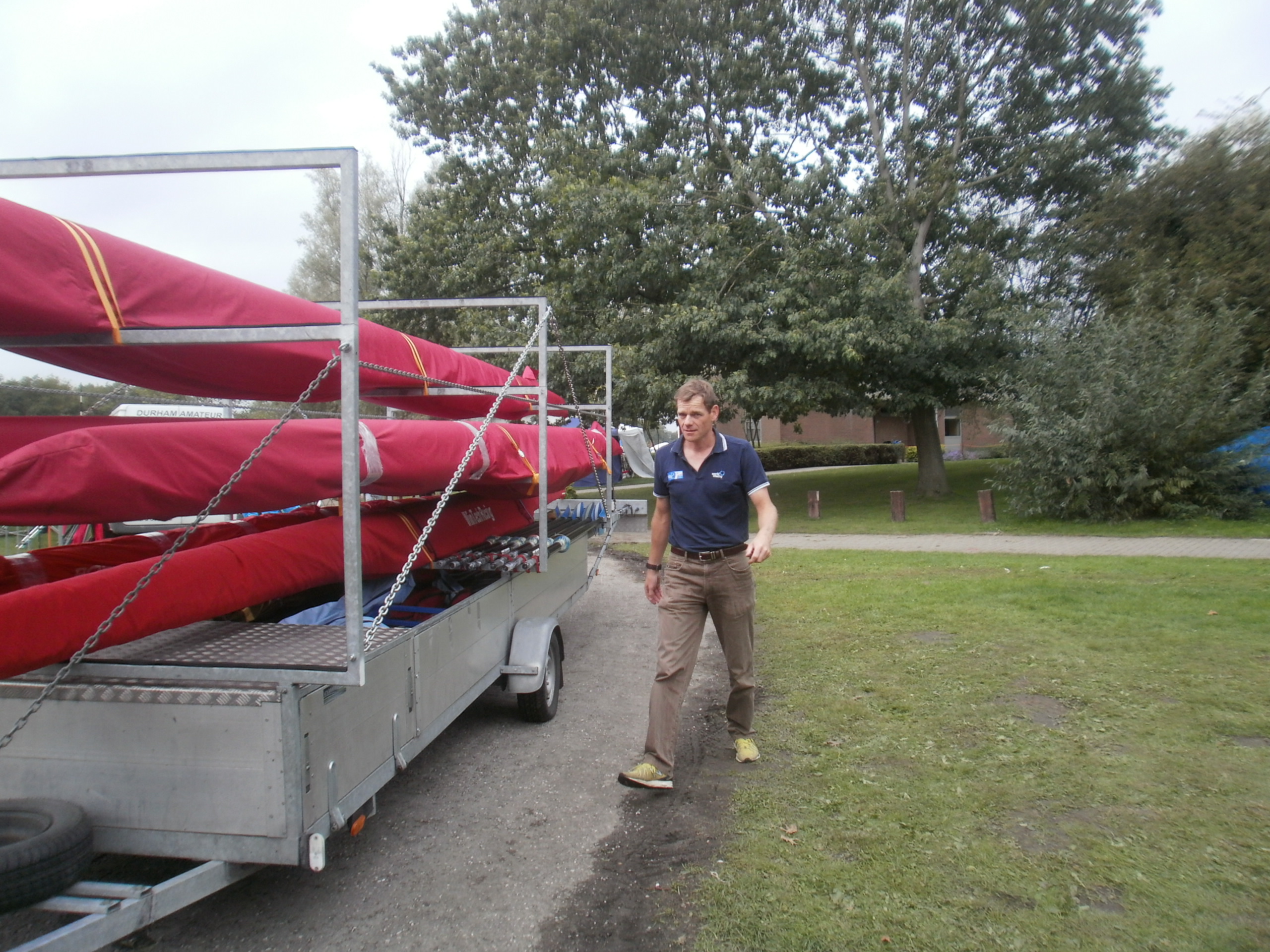
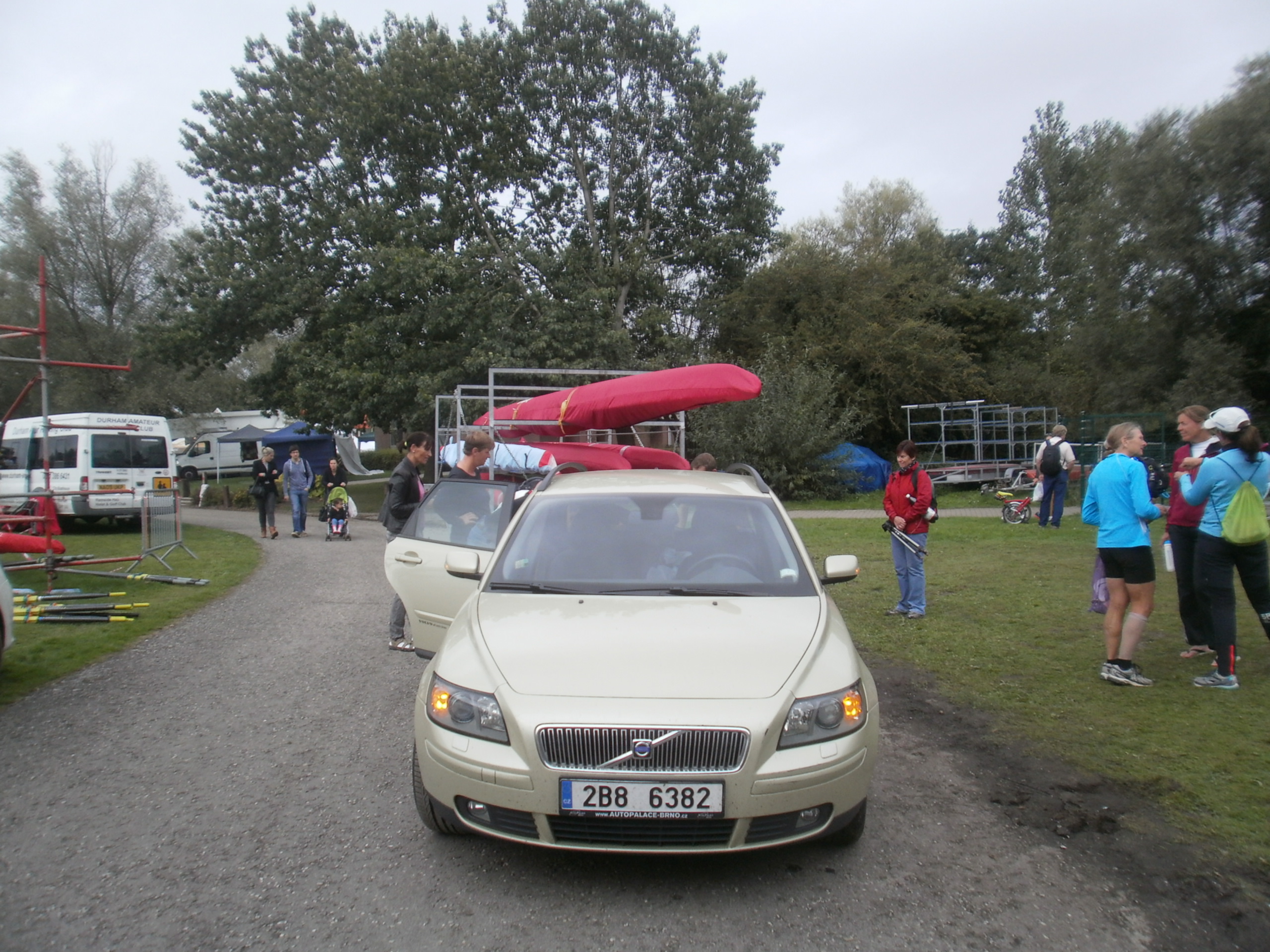
Driving on the regatta venue was quite challenging with 10 trailers trying to enter it, and 5 others trying to leave it at the same time. By driving slowly and having friends walking at each end of the trailer, I luckily managed without any damages.
We left at 2pm, one hour after our start on the mixed double.
The first surprise was on the highway towards Antwerpen. I decided to take over a slow car (it was doing slower than 70 km/h) and driving at around 100 km/h I noticed that the trailer started to snake. I reduced speed and at the first gas station we tried to improve the driveability by moving some weight to the front of the trailer. It didn’t really help. In the end we had to drive around 90 km/h on good roads and around 80 km/h where the highway had ruts. The whole trip took us 15 hours. We arrived at the Brno rowing club by five in the morning. In bed at 5:30 for four hours of sleep before I went to the office. On Tuesday morning, I really hated having to sit in the car again to drive to meetings in Prague on Tuesday afternoon and Wednesday morning.
The conclusion
A good regatta. A few very nice races and good times, but unfortunately no win. I am starting to think that the regatta date early September is not ideal for us with school-going children. It’s the second week of the new school year, but more importantly, this regatta is inevitably immediately after the summer vacation. I believe I had better form in July. This is also the reason why I will probably not go to Copenhagen in 2016, but compete at Euromasters in Munich in July.
And I will never again tow an old, unknown trailer. Strictly my own which was designed and made by a certified trailer builder with safety and driveability in mind.
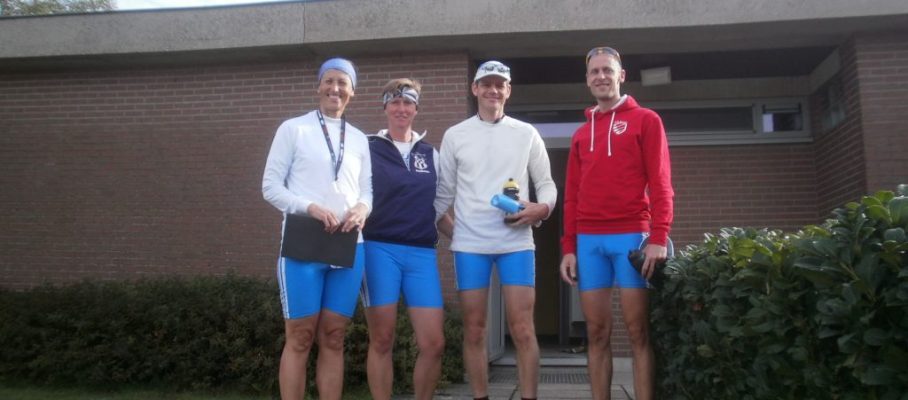
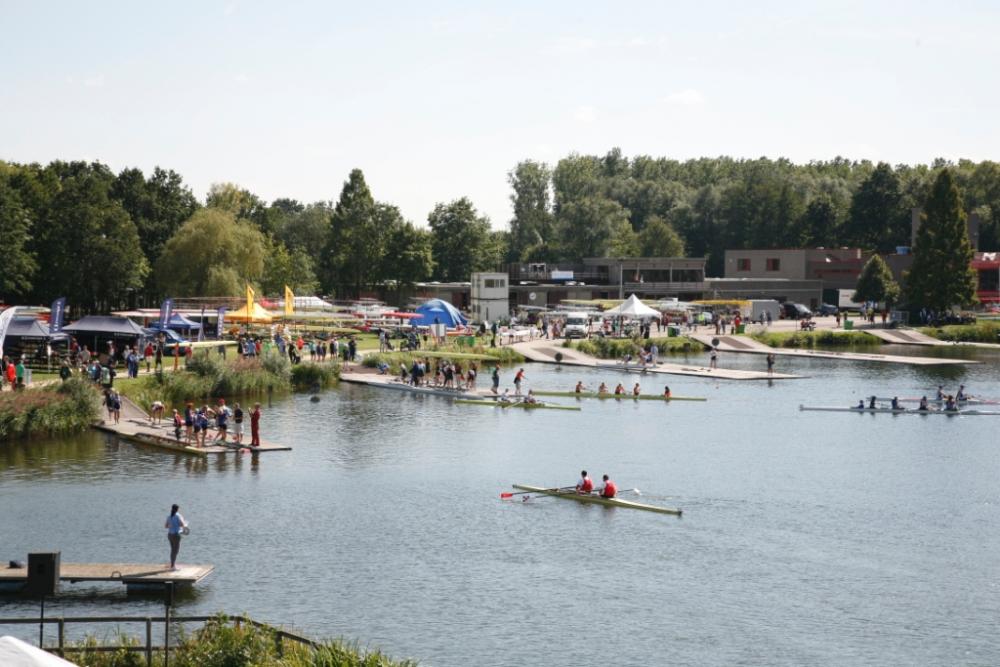
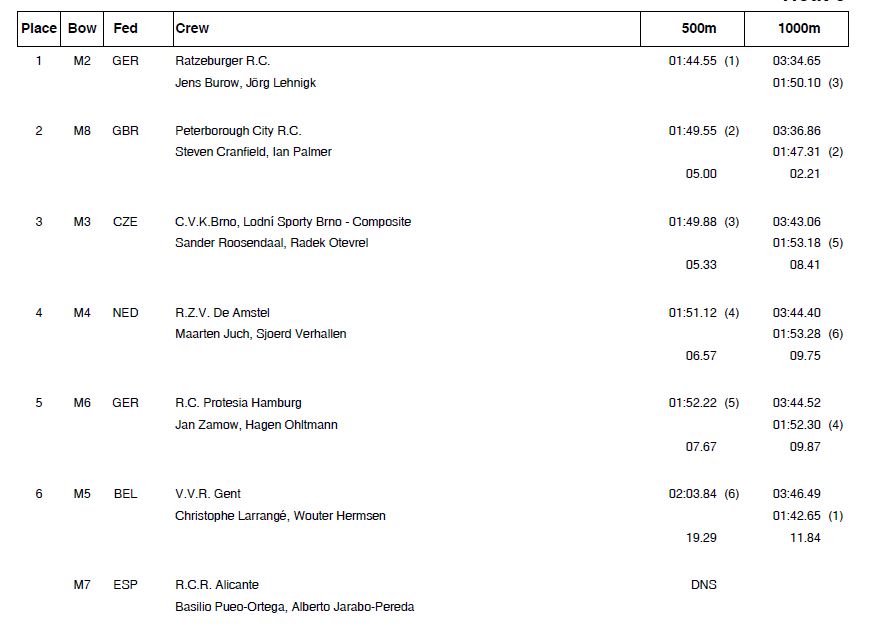
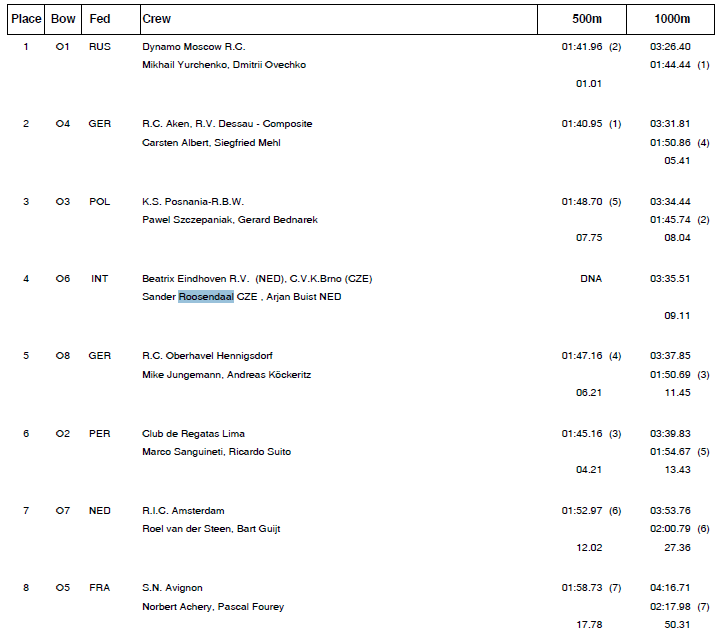
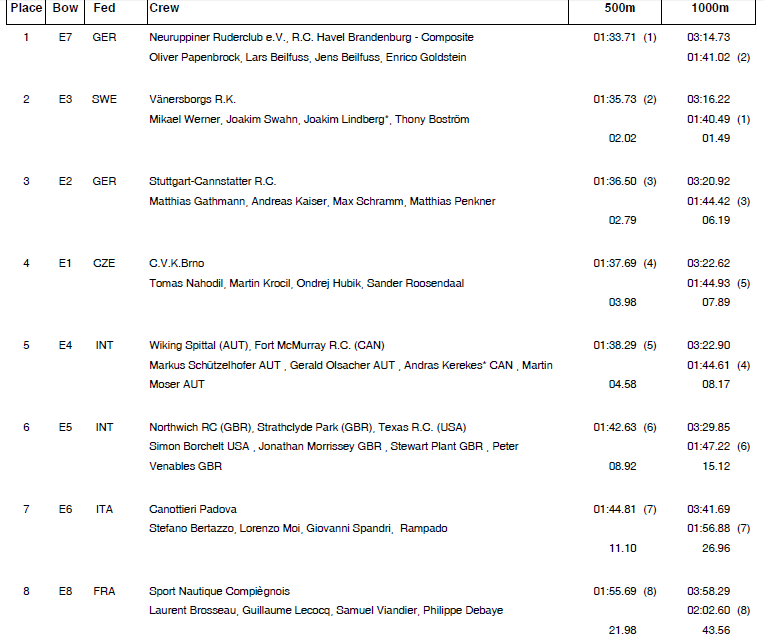
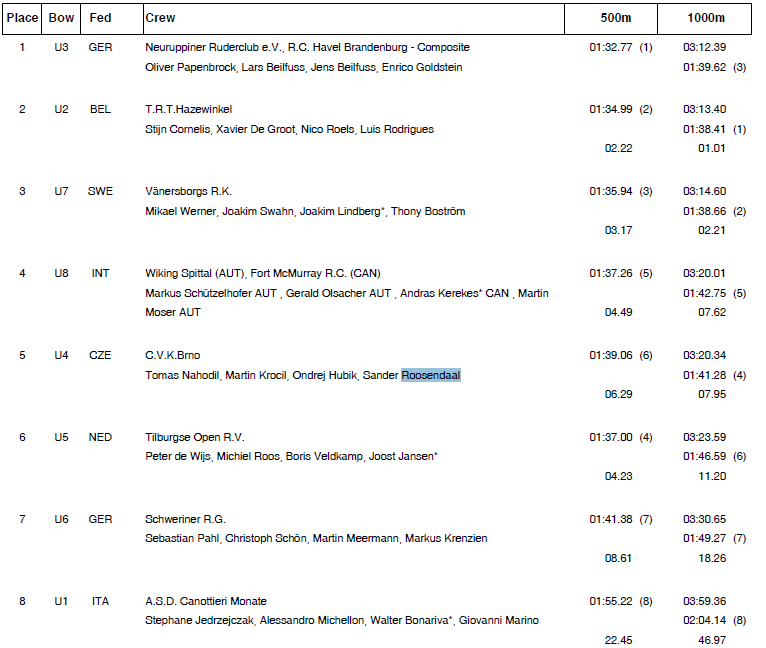
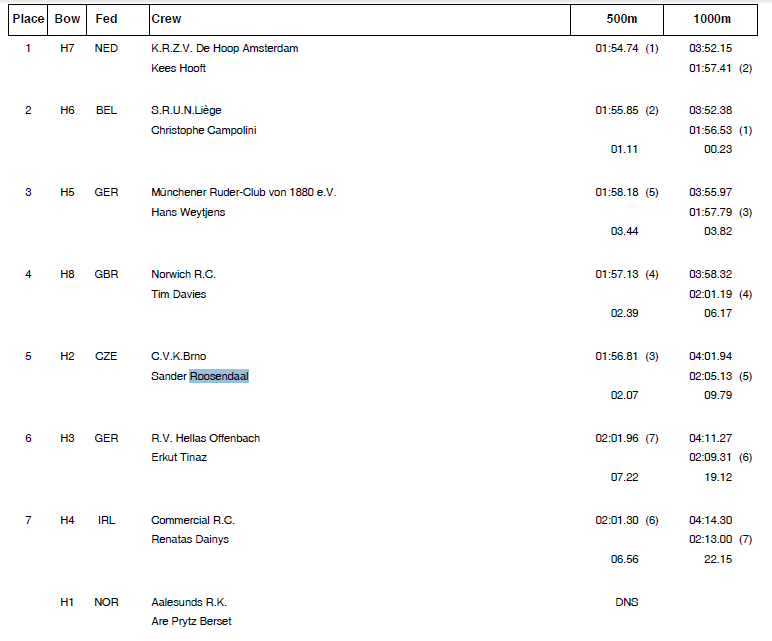
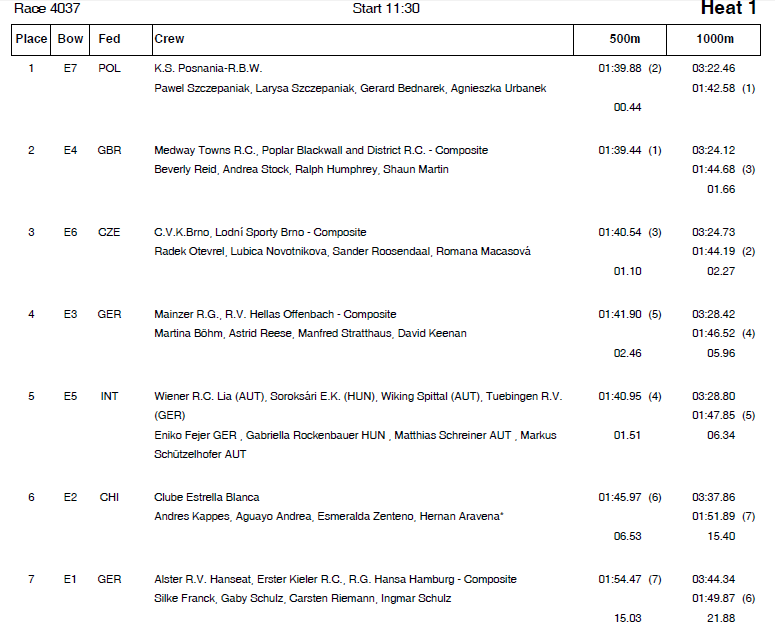
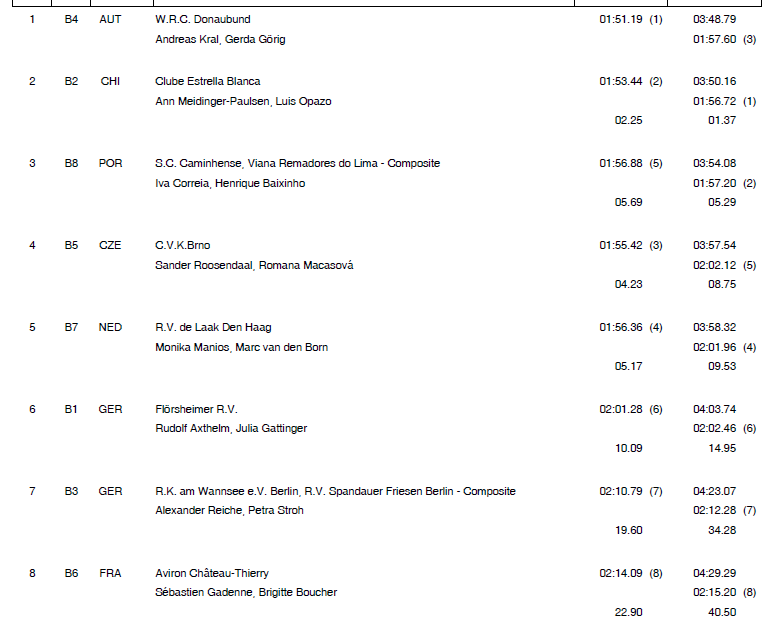
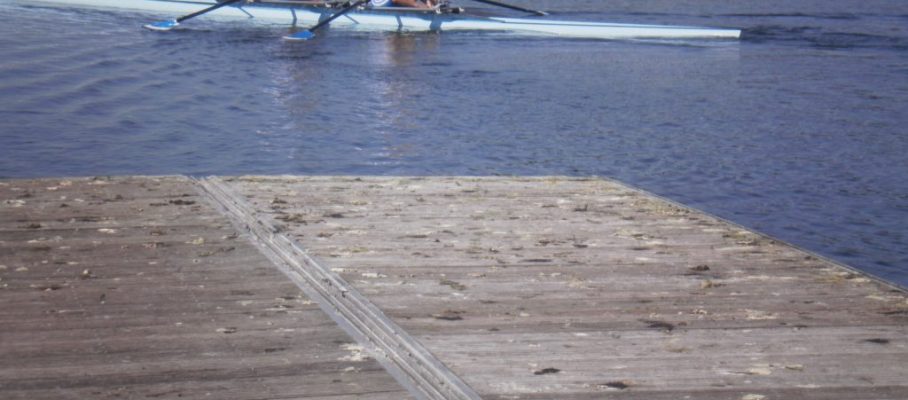
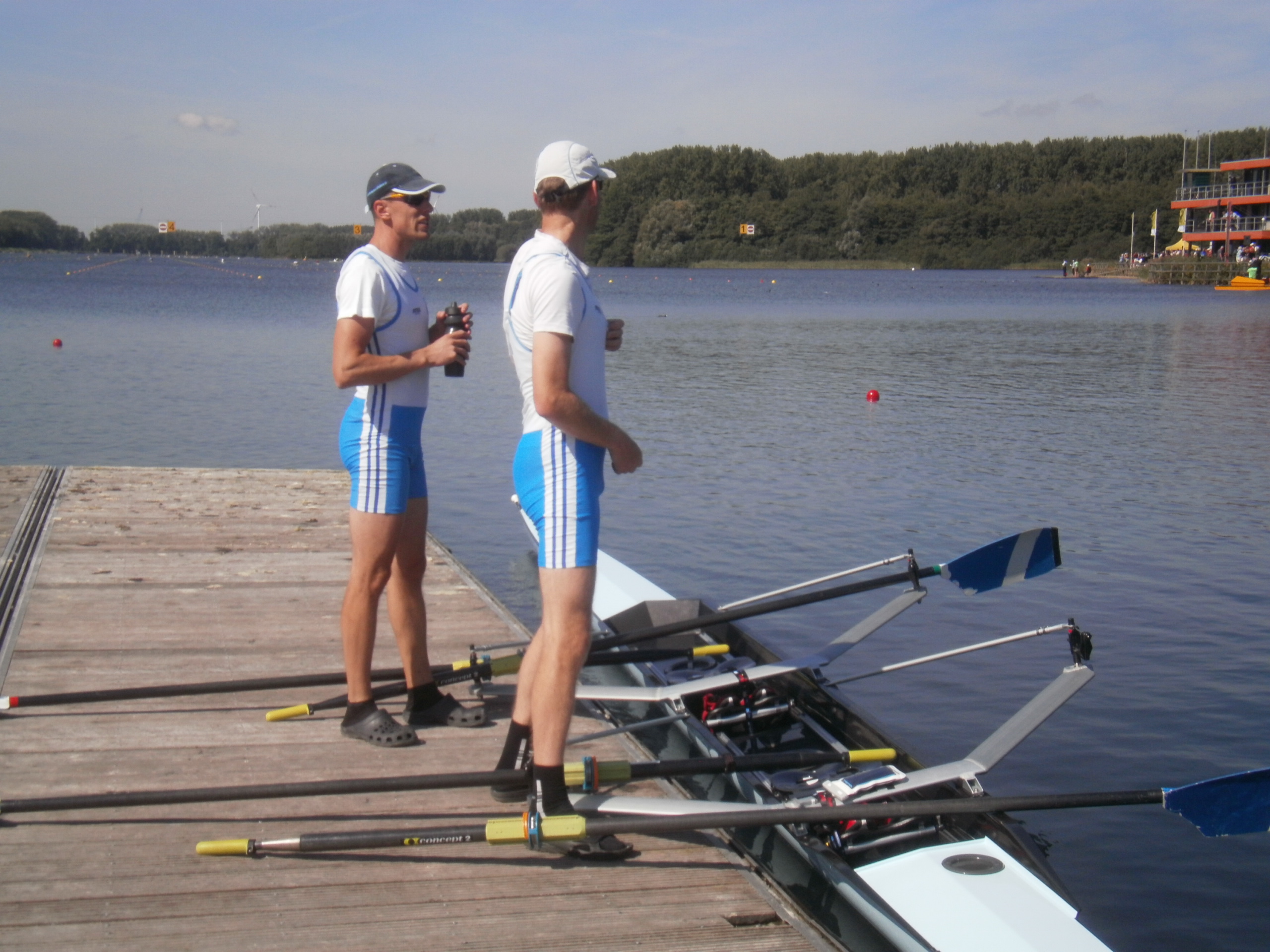
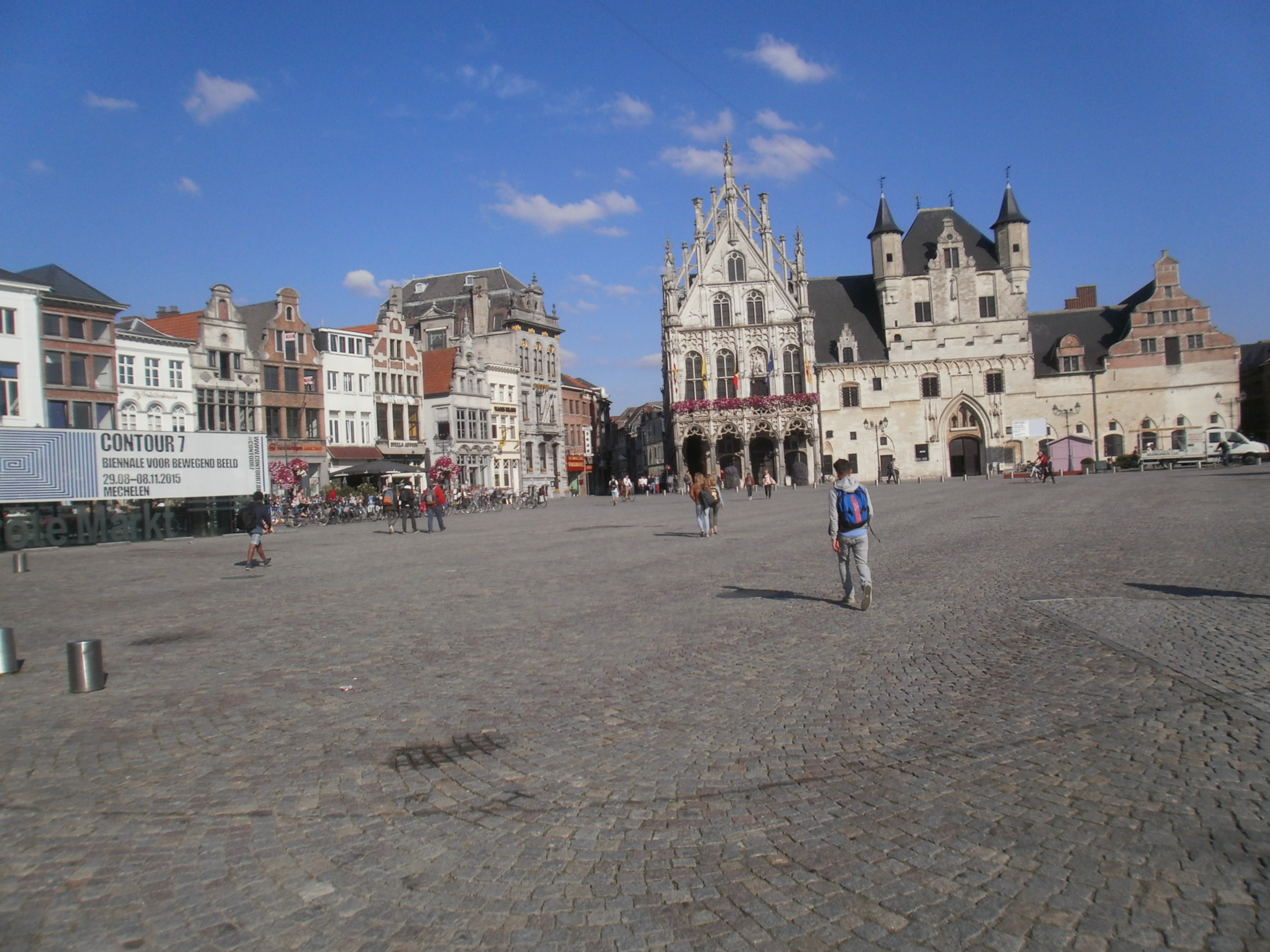
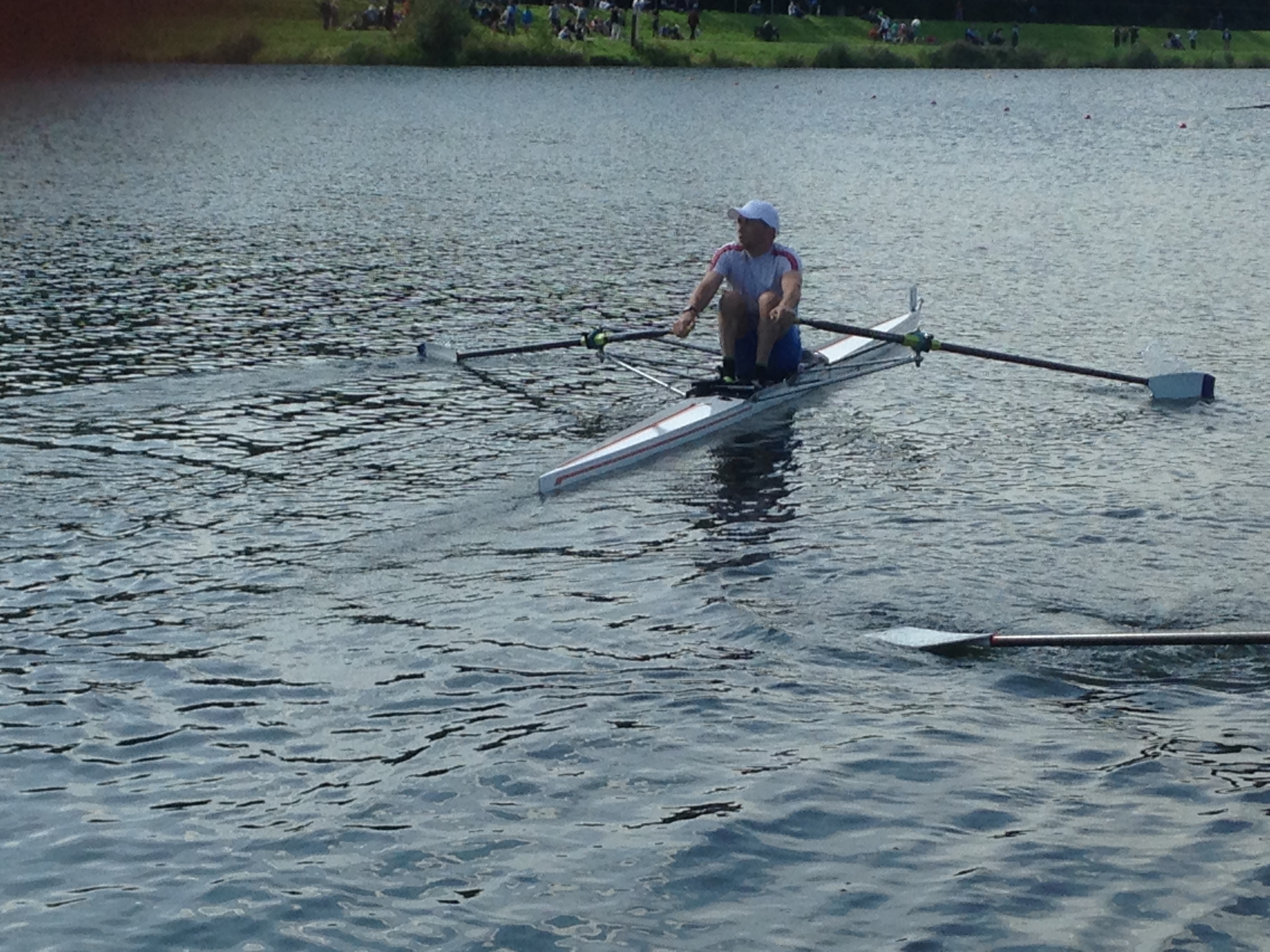
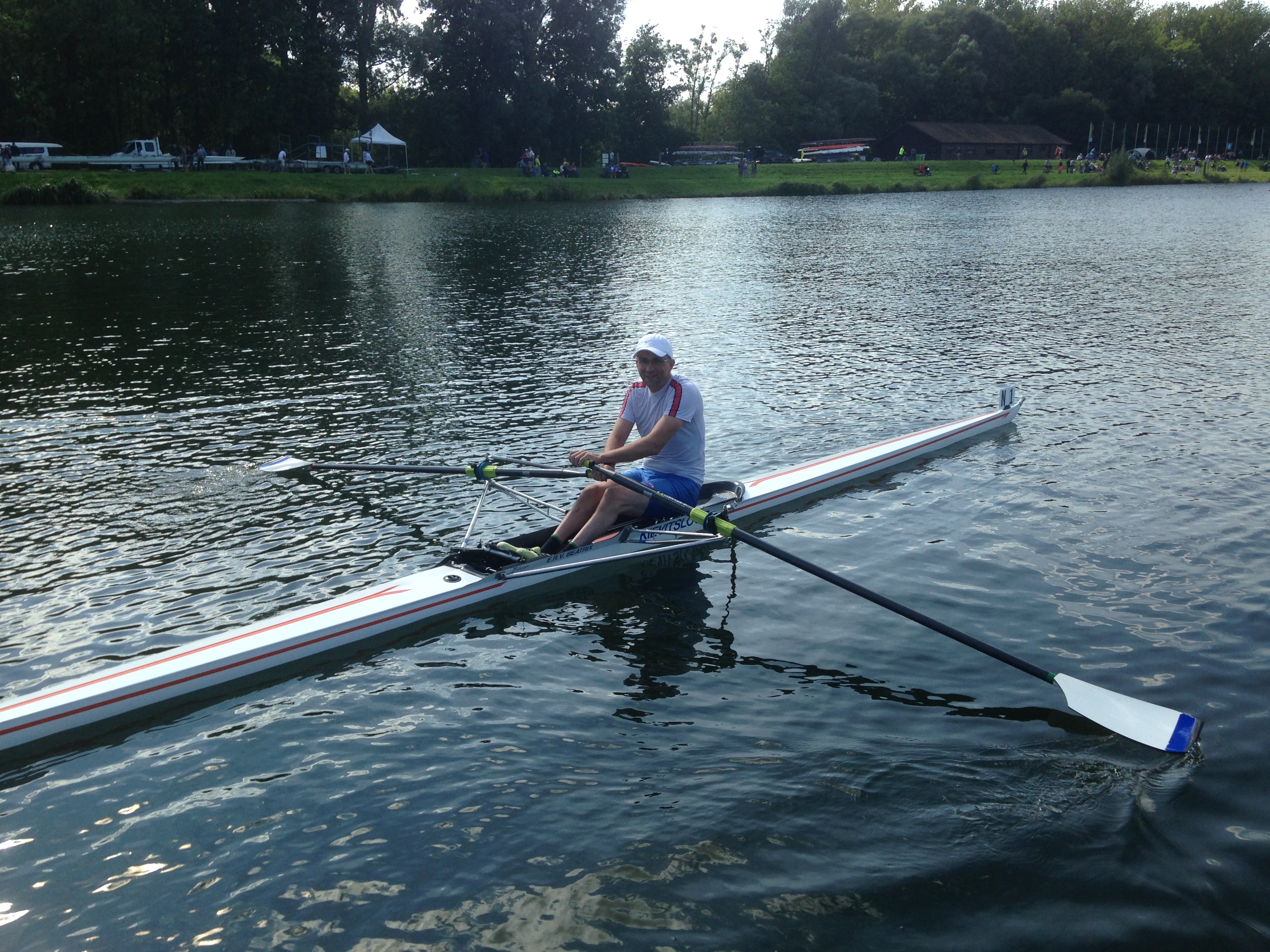
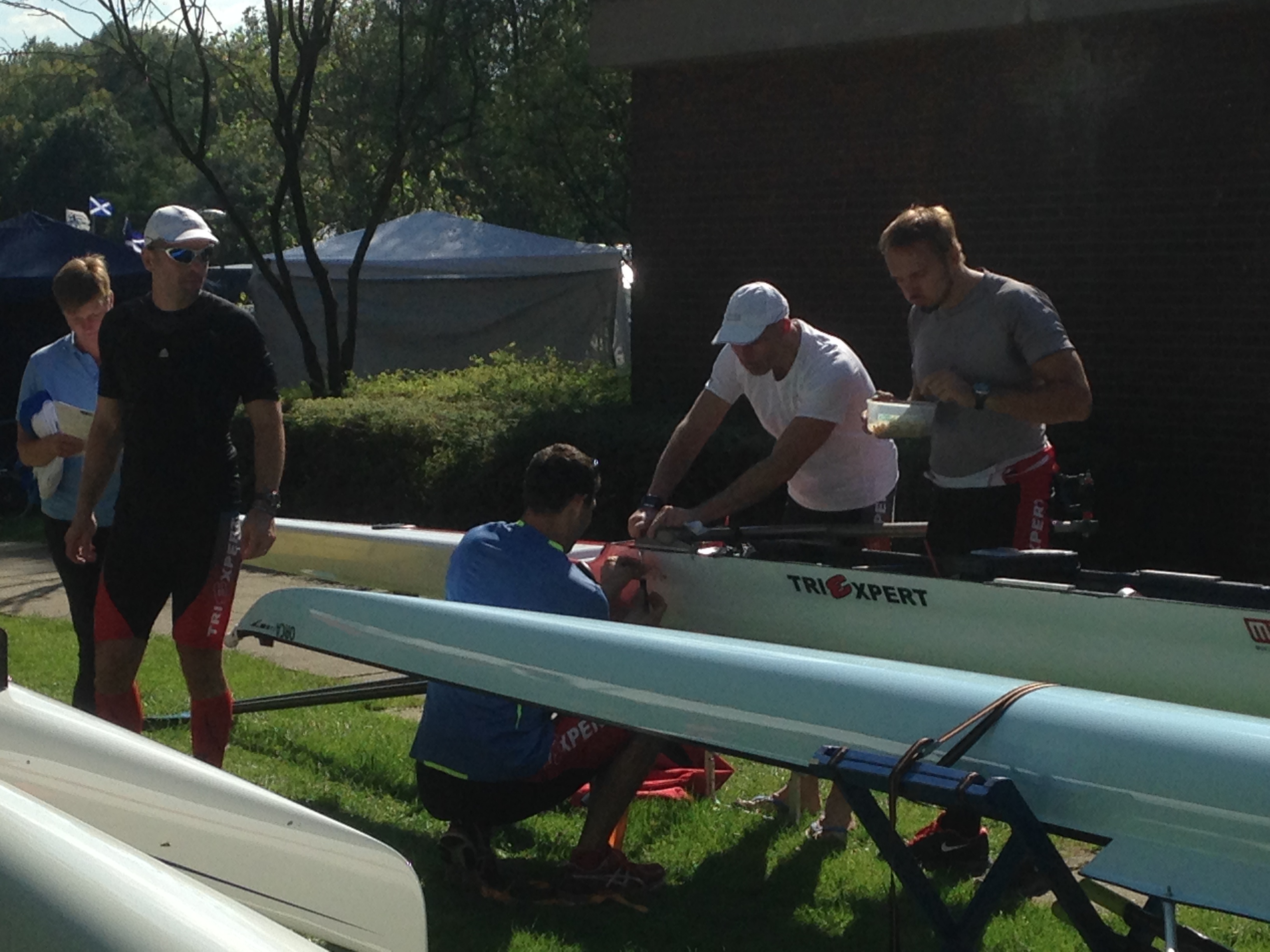
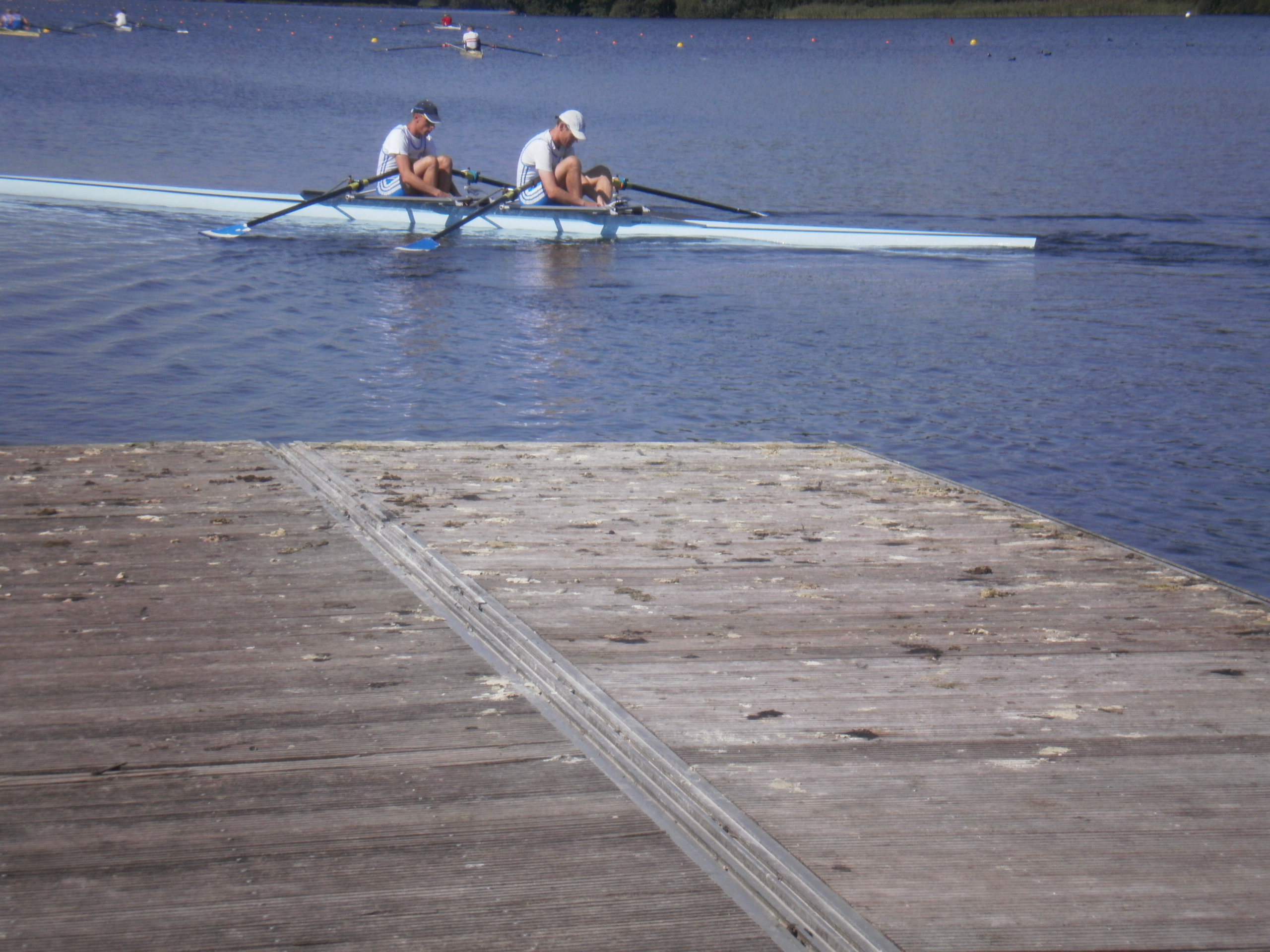
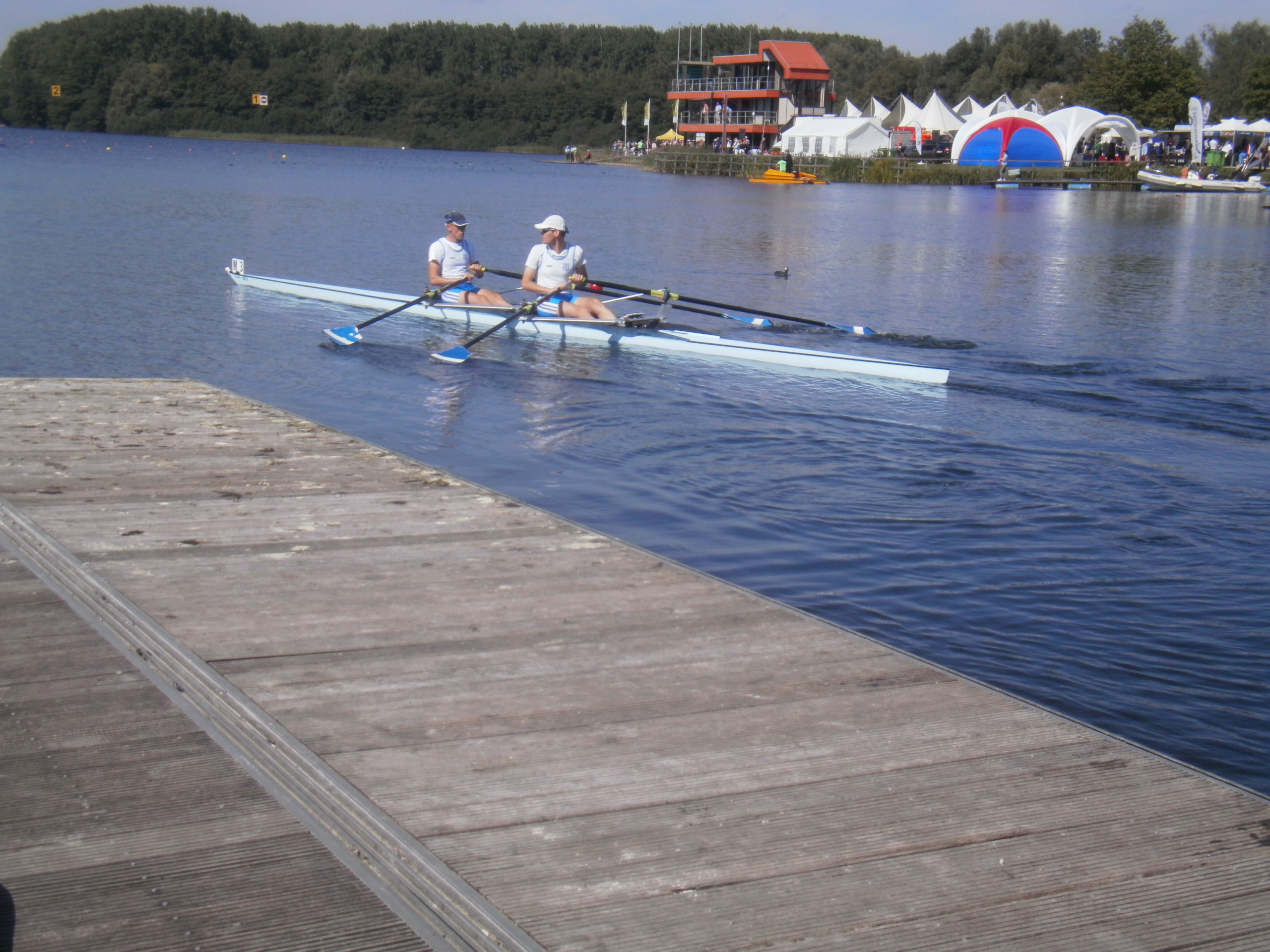
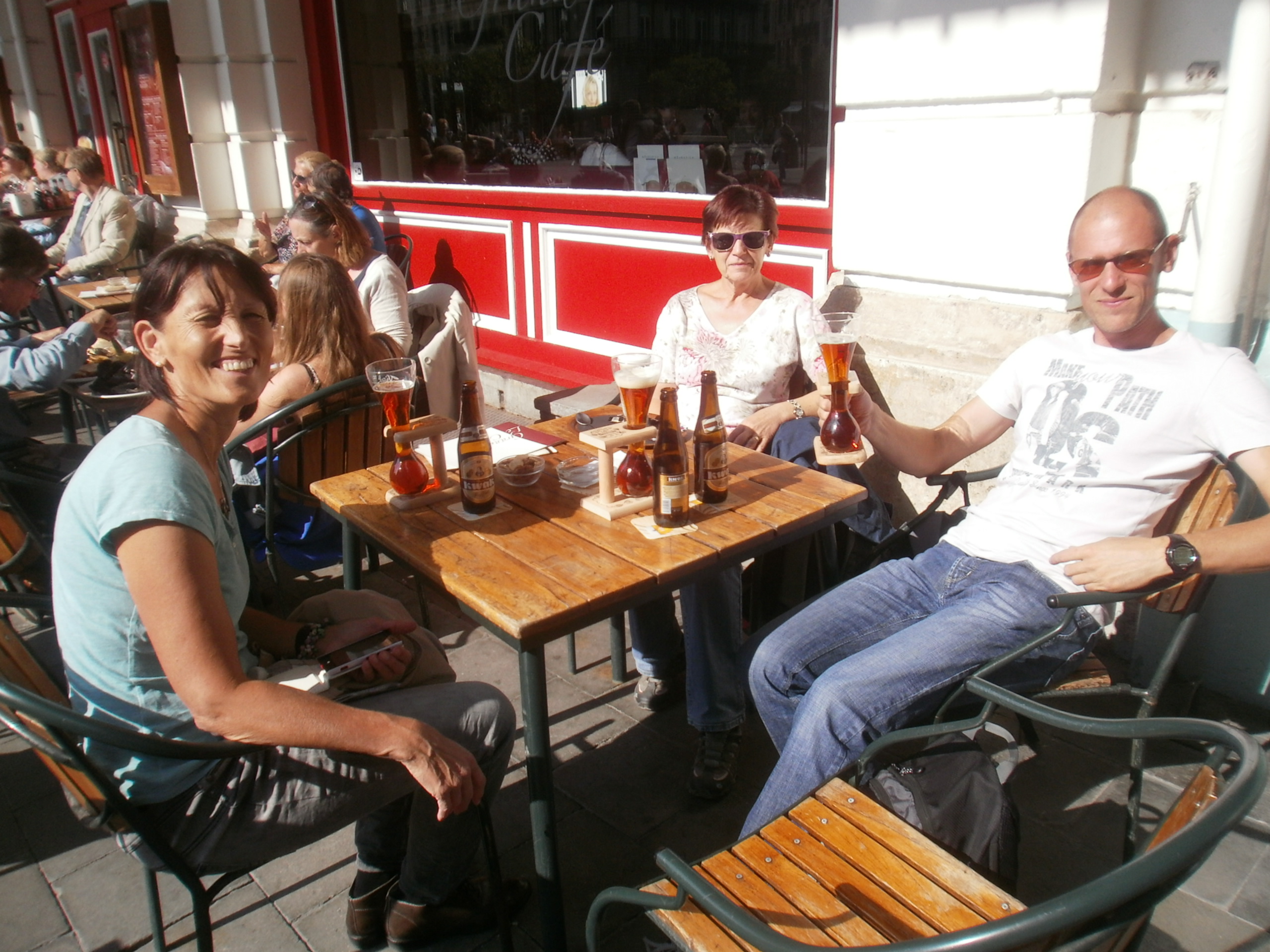
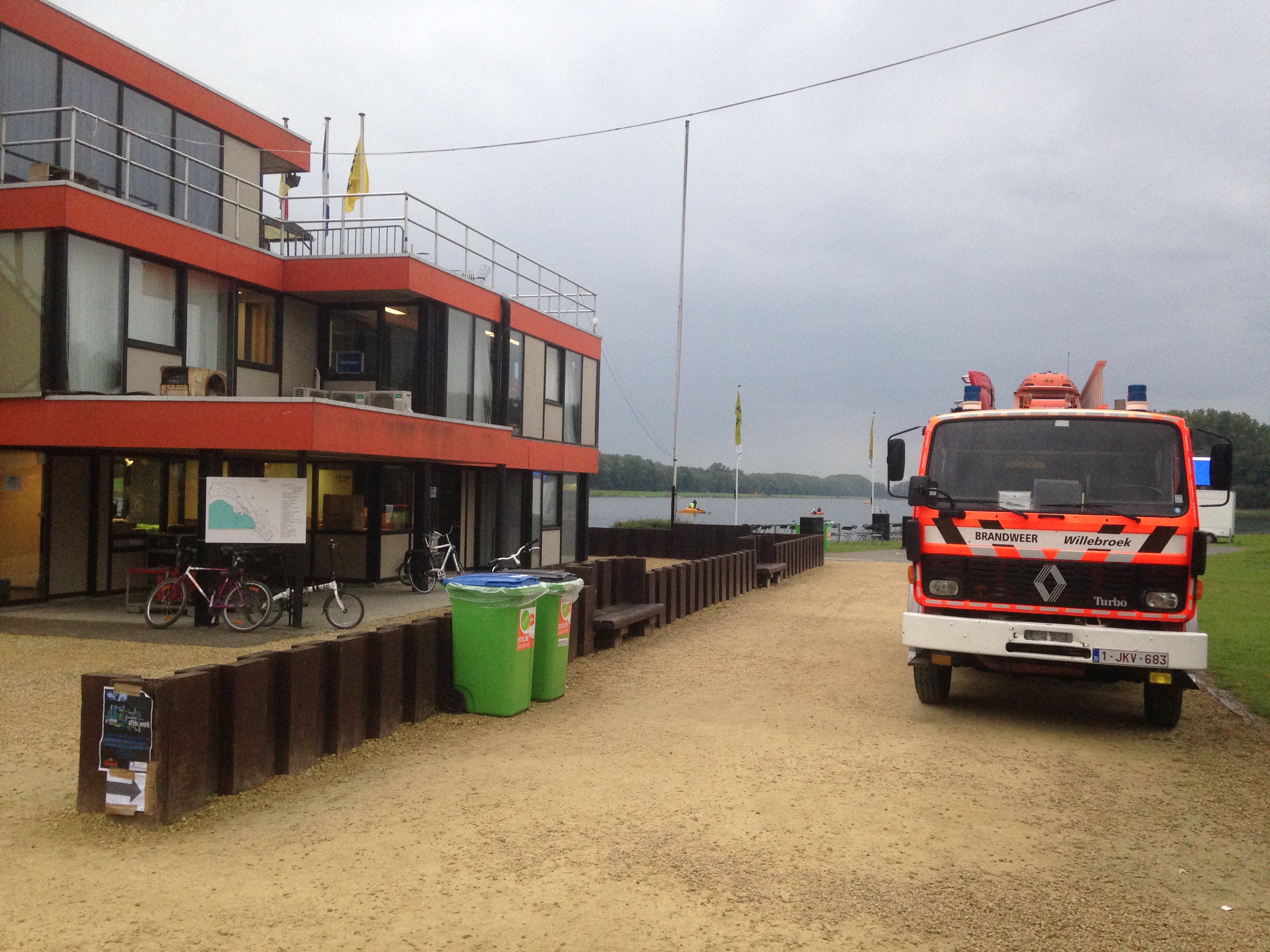

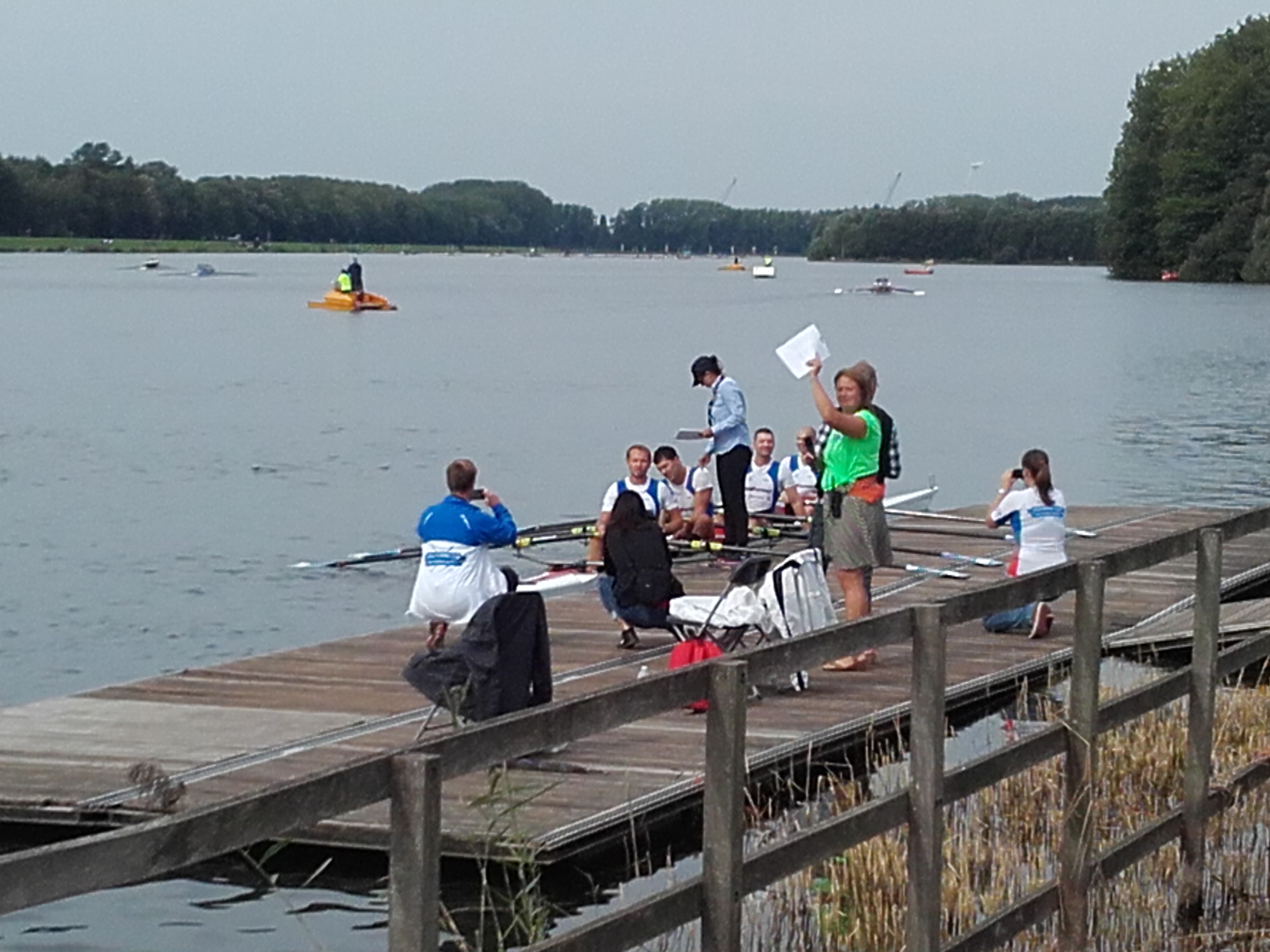
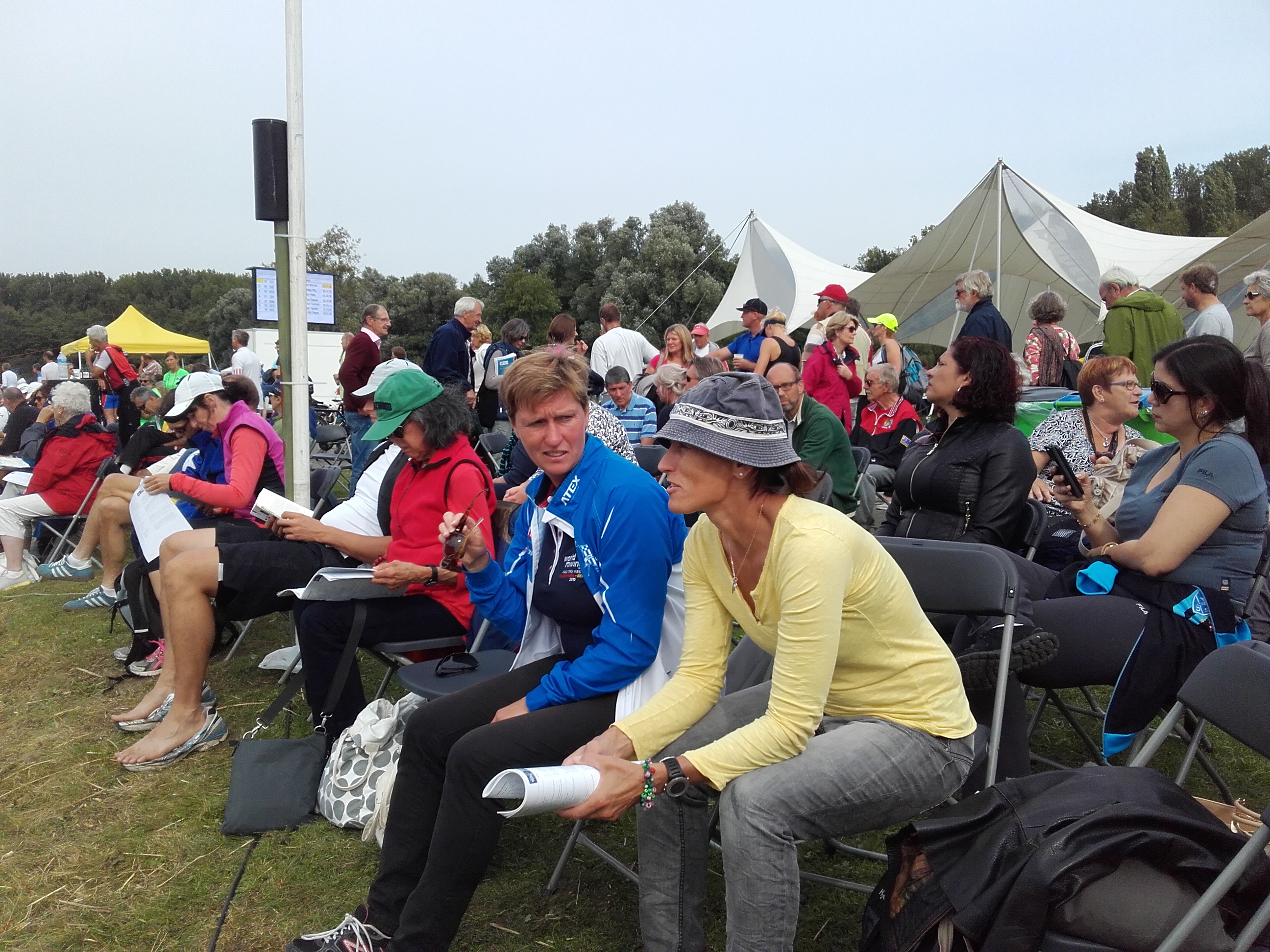
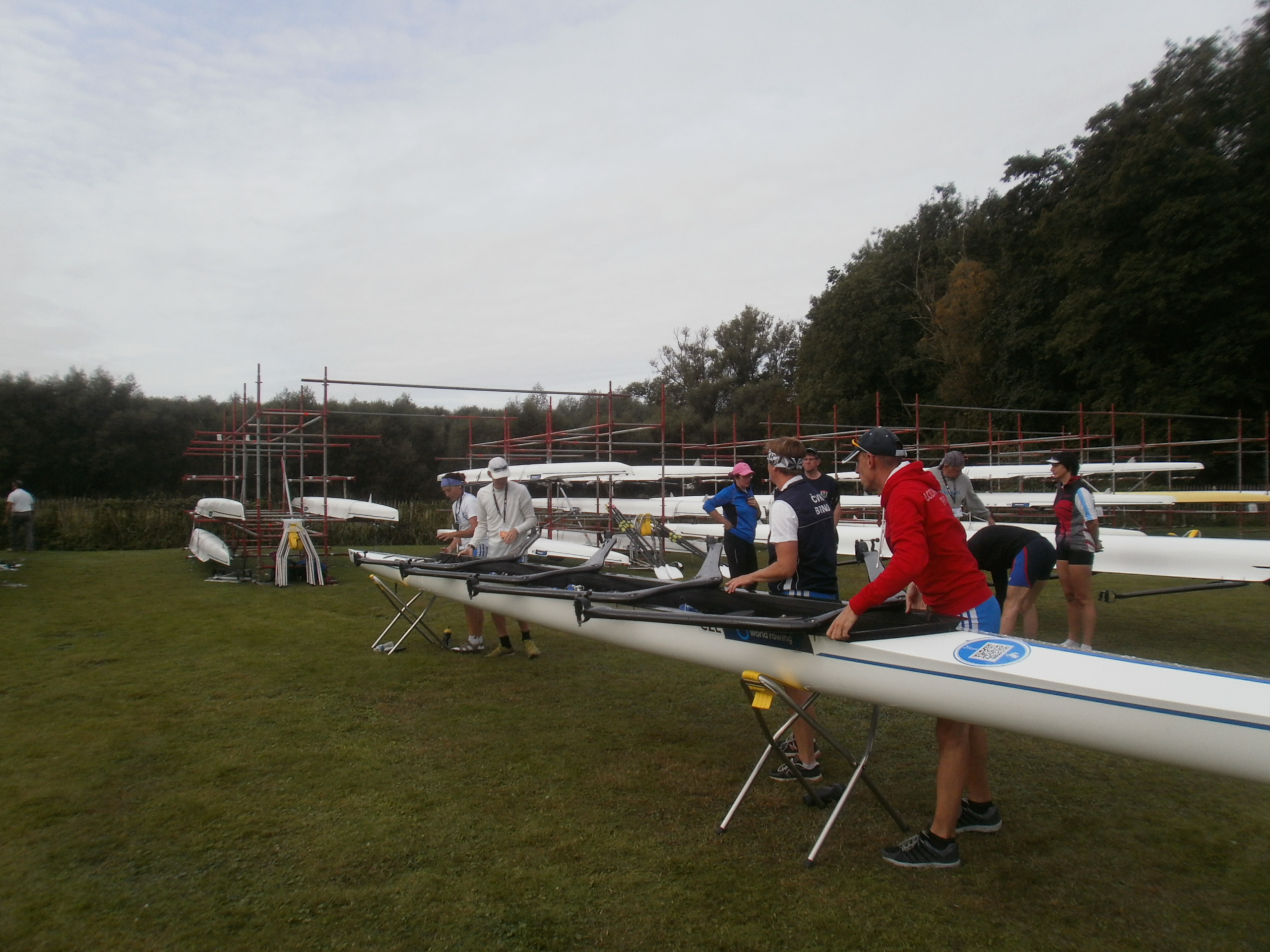
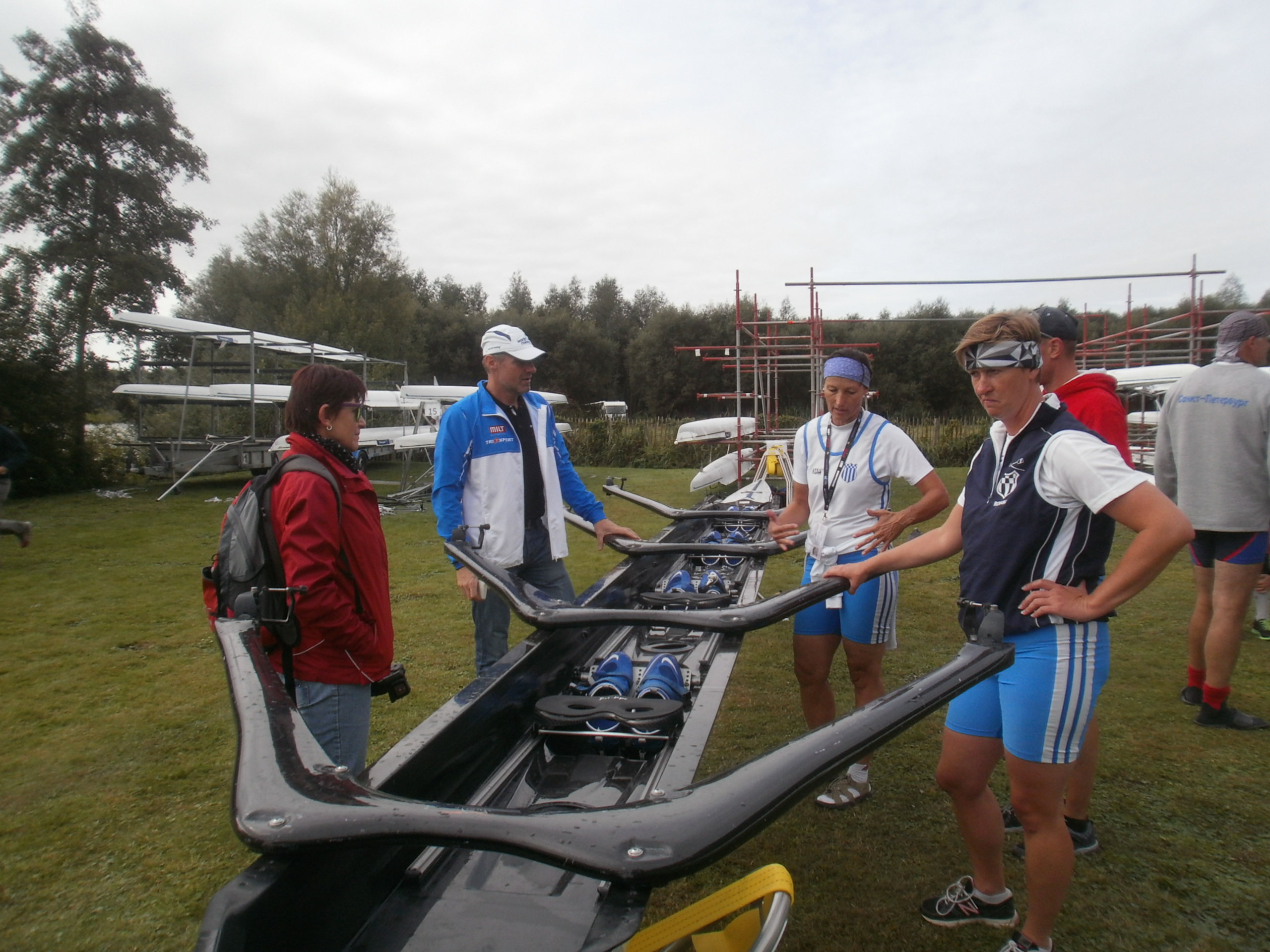
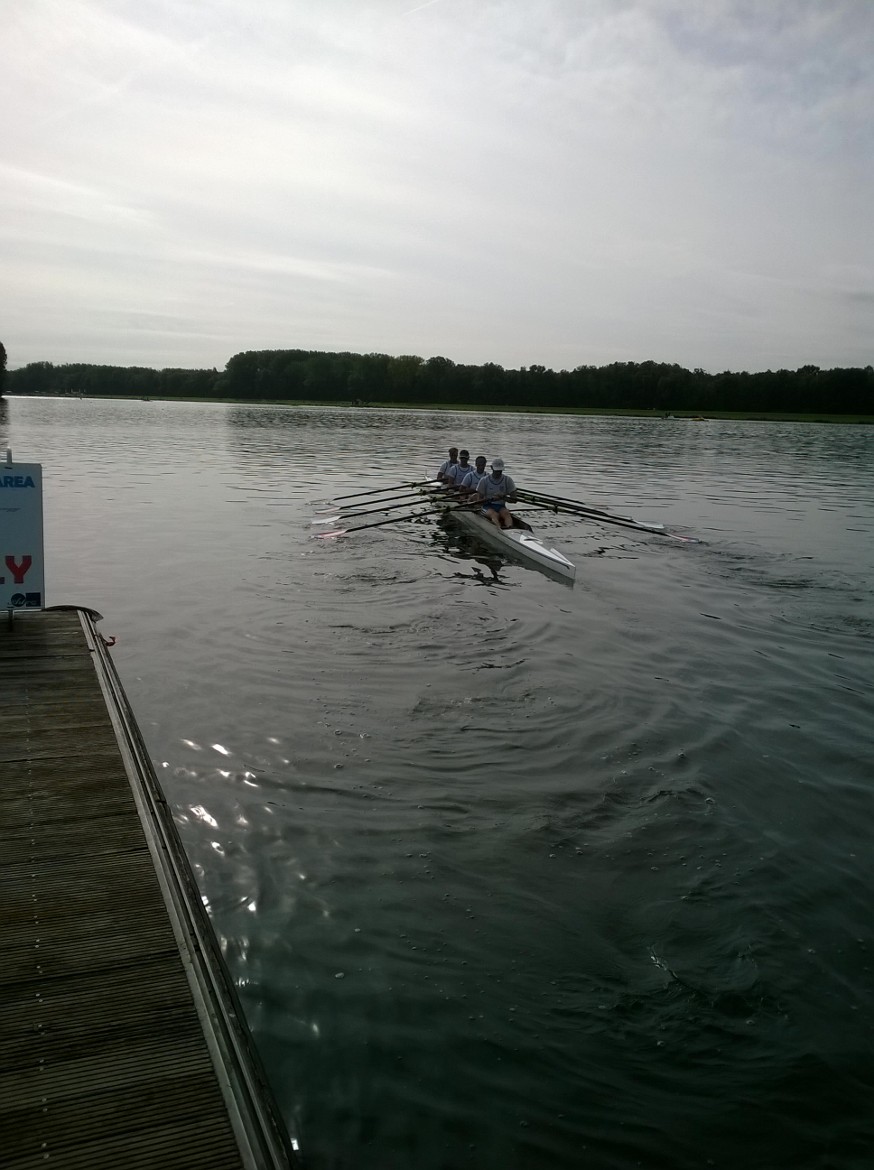
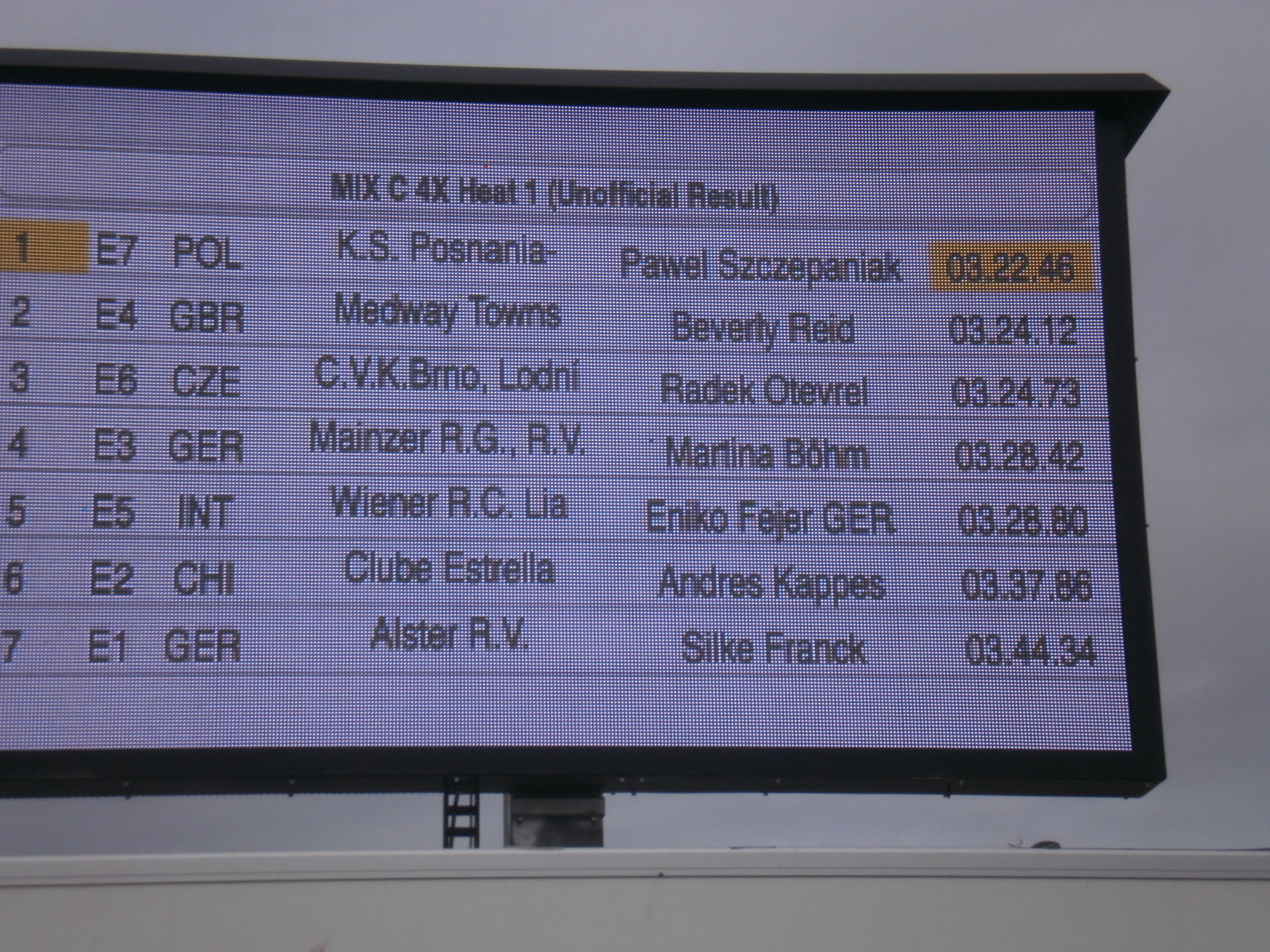
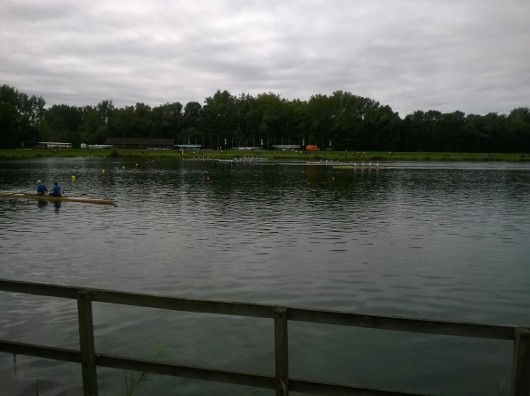
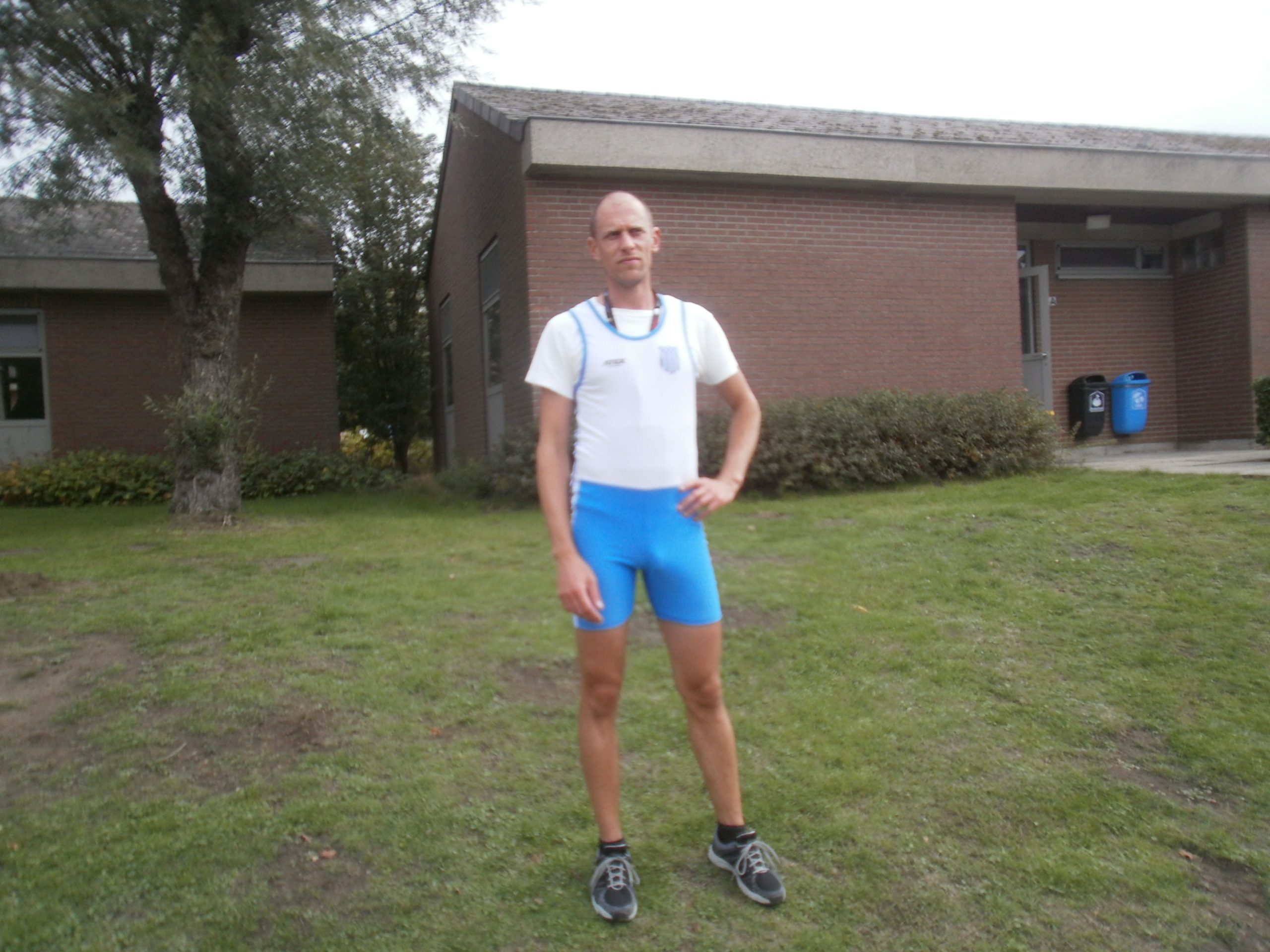
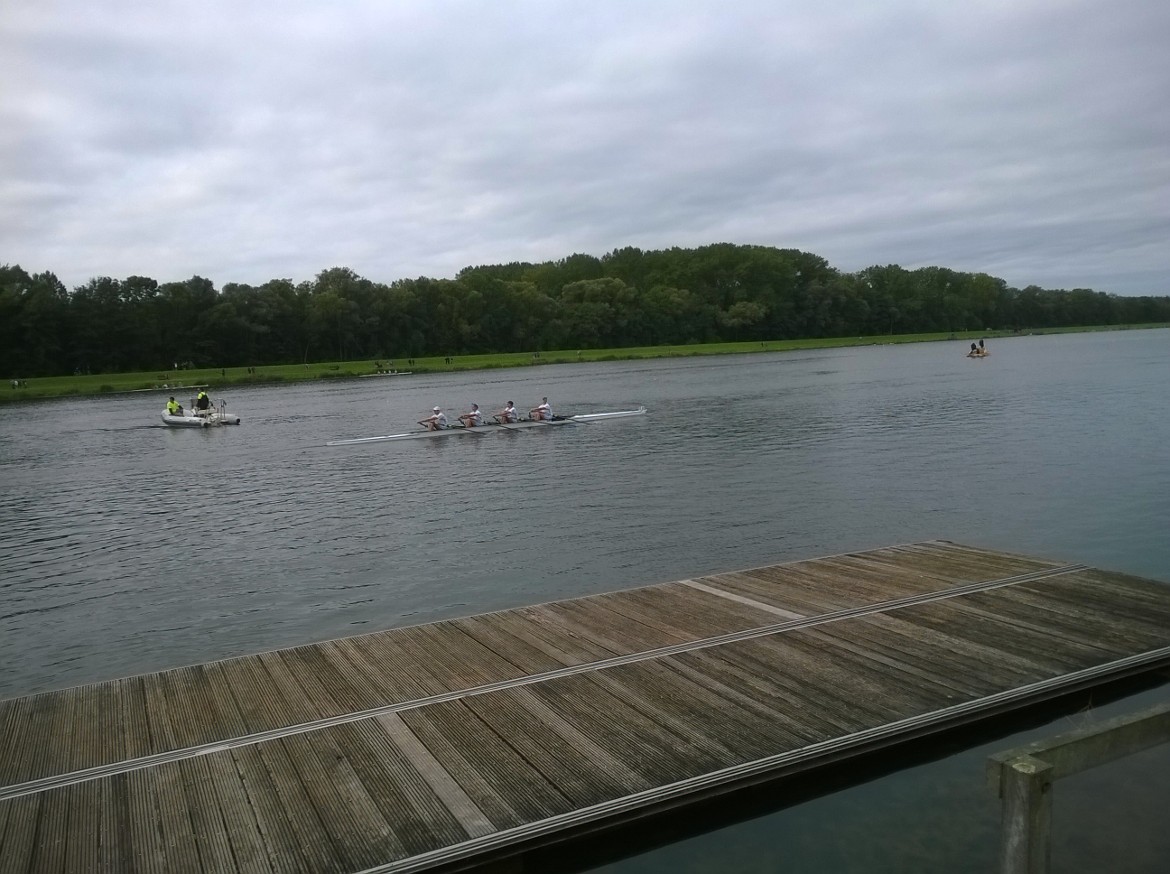
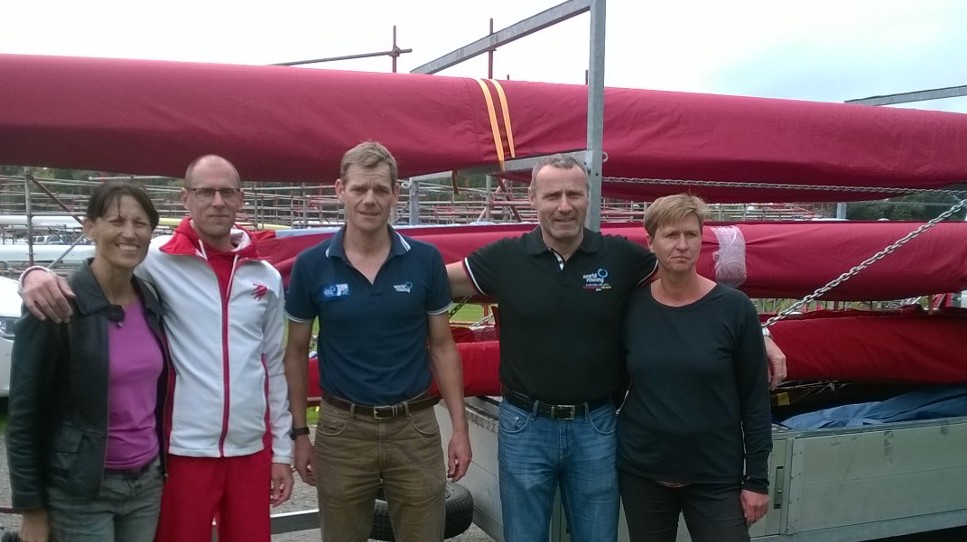
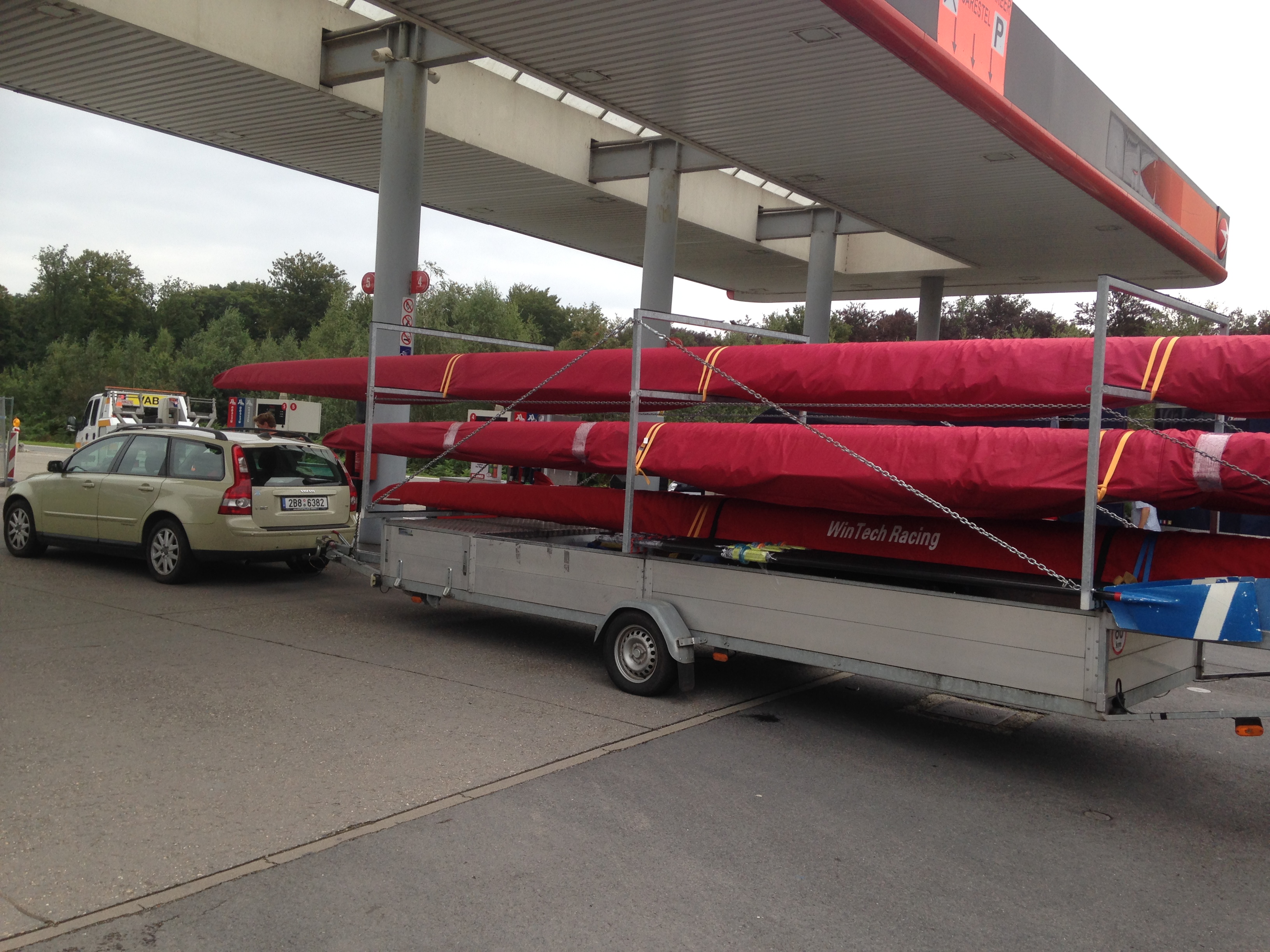
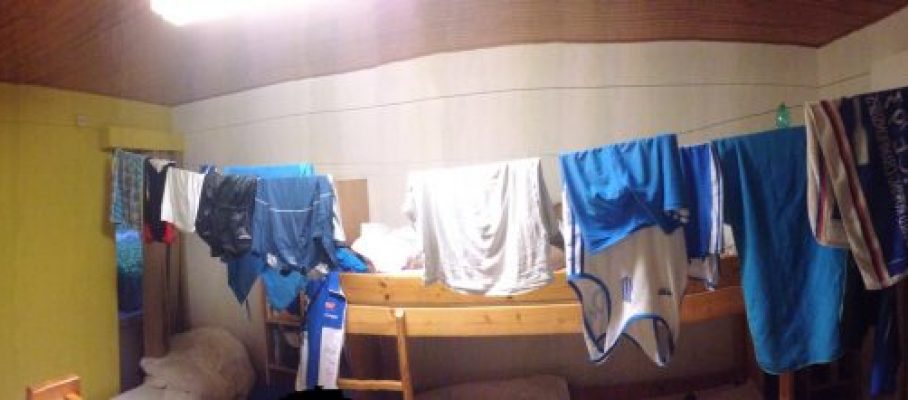
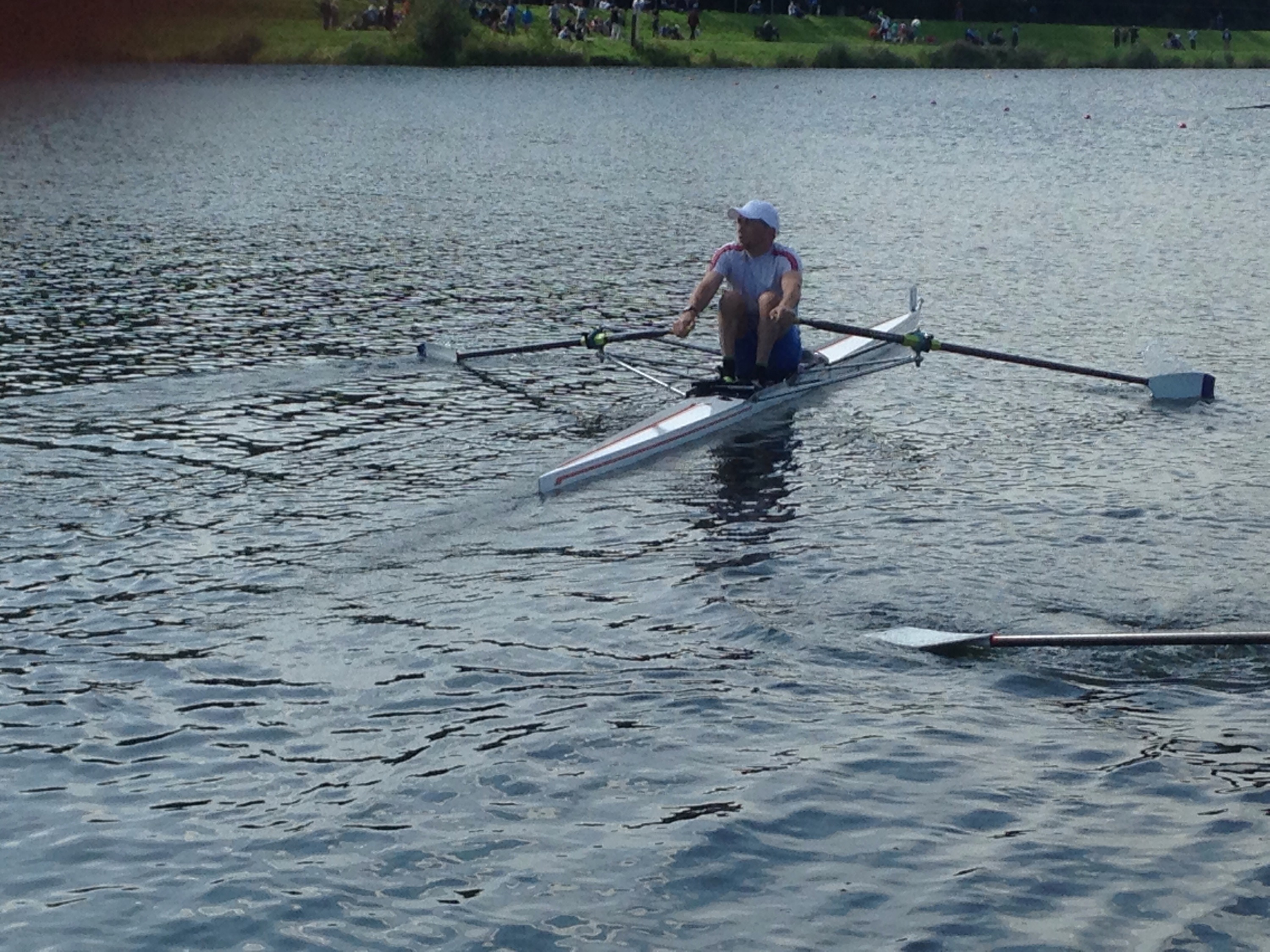
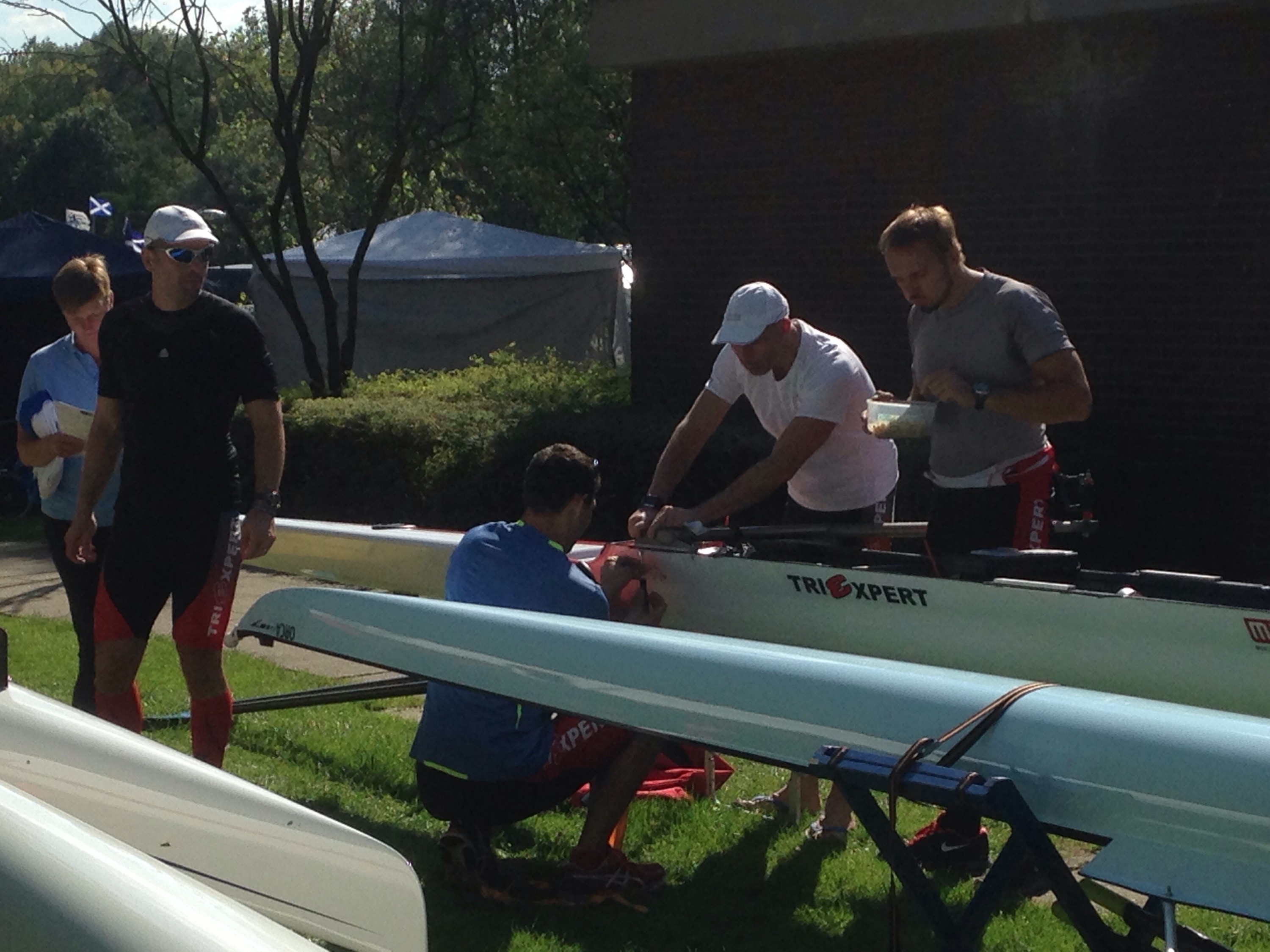
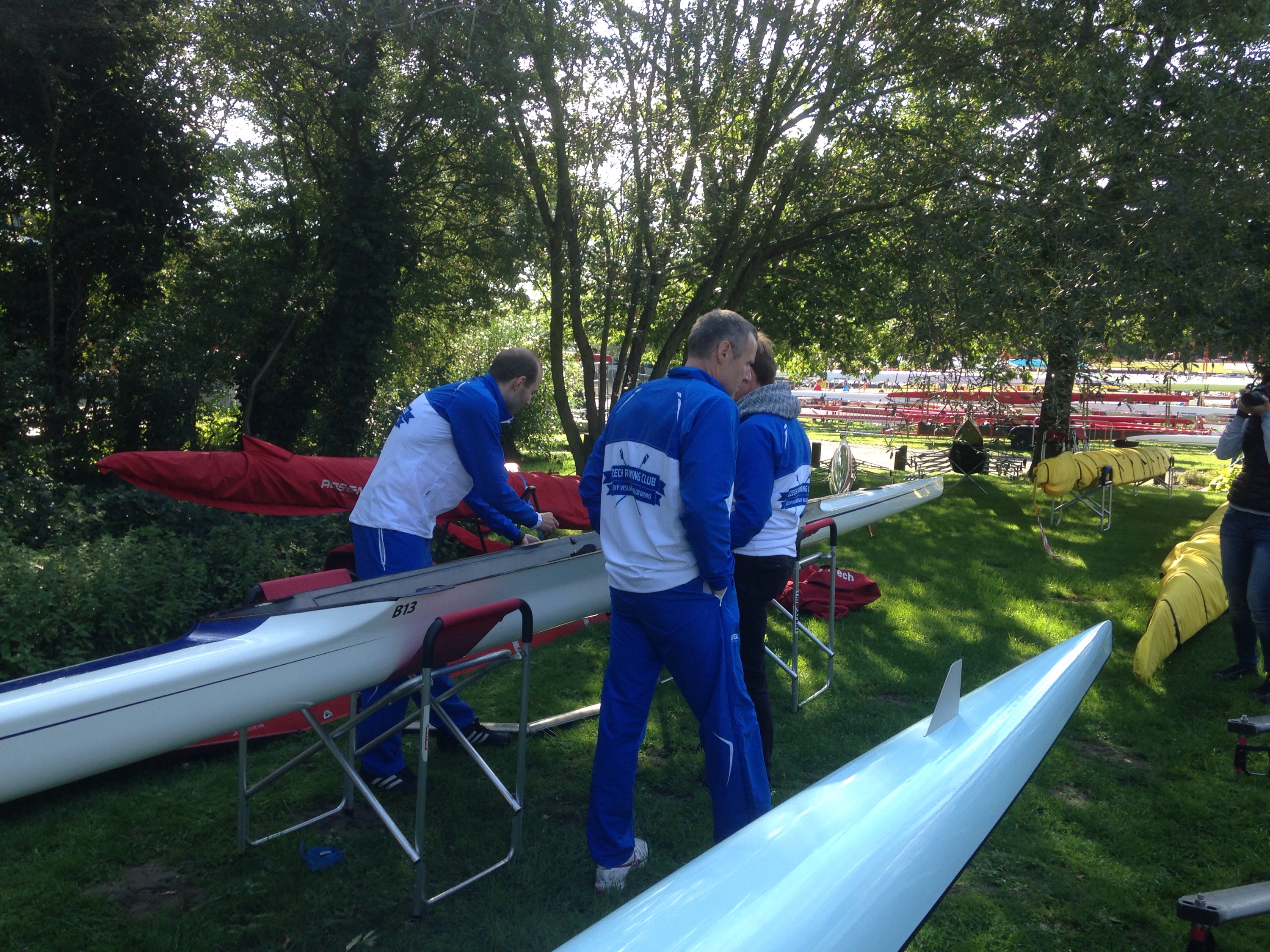

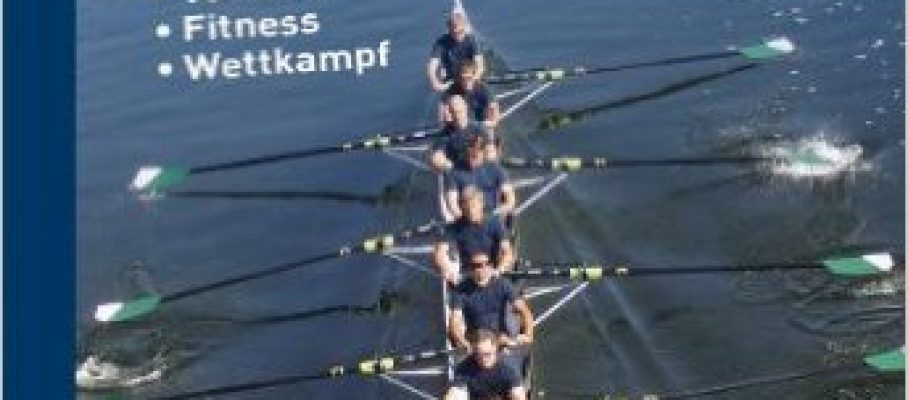

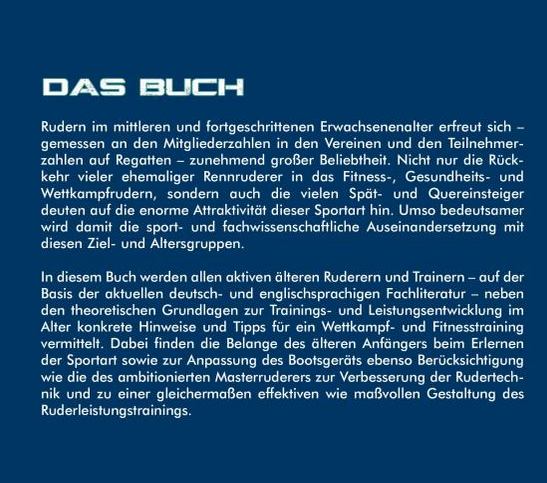

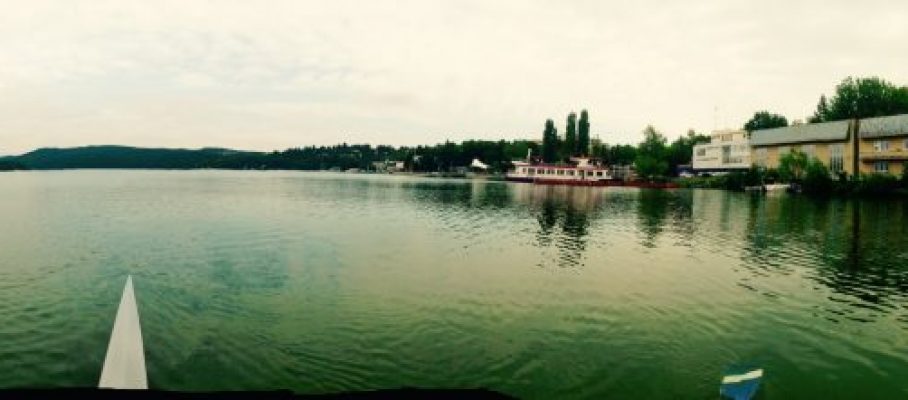

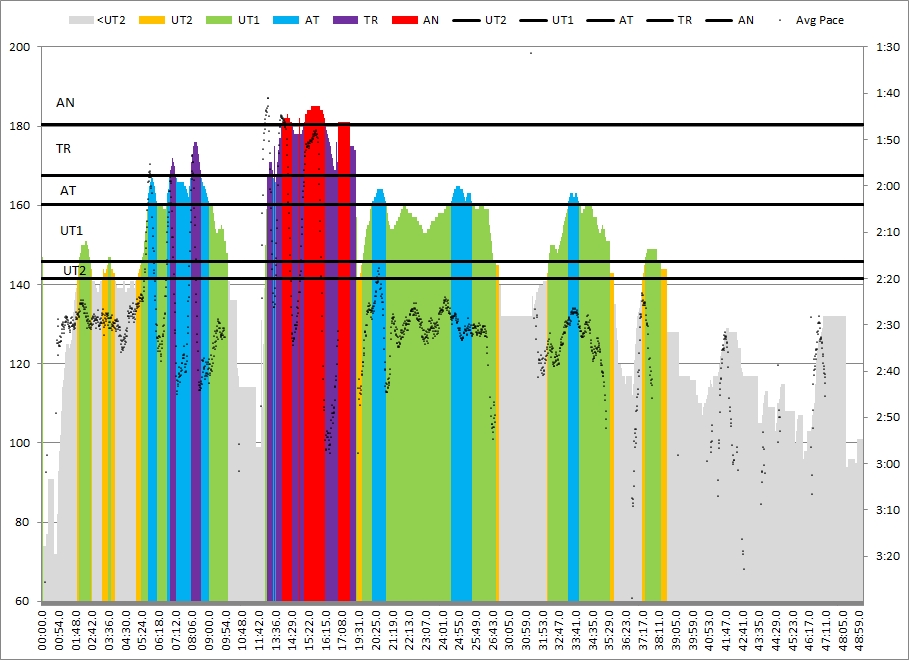

Sep 19 2015
Shock Therapy: 6km OTW trial and testing new Rowing In Motion feature
The update of Rowing in Motion (RIM) has a new feature: programmable workouts. I wanted to try it, because I love the stroke analysis of RIM and combined with programmable workouts it would be a great app.
It works a bit different than CrewNerd. In CrewNerd you can access the “workouts” at any time, so you can warm up using “Just Row”, then dial up an interval session with pre-programmed rests (say 8x500m) but you could also just dial up a 500m, row it, rest a bit, then dial another 500m etc. I didn’t discover this feature in RIM, so if it has it, it is well hidden. In RIM, you program the entire workout before you start to row, so I had to program:
10 minutes warming up
5 minutes rest (with some extra reserve time)
6km trial
5 minutes rest
10 minutes cooling down
I never know if my warming up is going to be 9 minutes or 11 minutes. It depends on the wind, on the exact course taken on the lake, and a few other factors. Also, when starting a set, one may want to wait until another crew has moved out of the way, or until the wake of a large boat has disappeared. I’ll send some comments to the RIM forum.
After a week dedicated to work, including a short business trip to Prague, and no training, I was back on the water again. I arrived at the club at 9am, rigged the single, and did the warming up. As I am defending a head race title on October 10, it’s about time to get used to head race pace. I decided to do the same as last year: row 6km trials on Saturdays. In fact, on our lake it is 3km, hard stop and turn, then another 3km.
|Dist_|Time_|Pace__|_SPM__|avg HR|max HR|DPS|Remarks
|01891|09:58|02:38.1| 19.4 | 145 | 159 |09.8|warming up
|00392|05:00|06:22.2| 19.7 | 151 | 157 |04.0|rest
|01002|04:03|02:01.2| 27.3 | 171 | 178 |09.1|km 1
|01002|04:11|02:05.2| 26.3 | 178 | 179 |09.1|km 2
|00996|04:09|02:05.0| 26.3 | 179 | 183 |09.1|km 3
|01002|04:49|02:24.2| 26.6 | 180 | 183 |07.8|turn & km 4
|01002|04:38|02:18.8| 25.4 | 179 | 181 |08.5|km 5
|00998|04:25|02:12.8| 27.1 | 183 | 184 |08.3|km 6
|00362|04:59|06:53.1| 18.9 | 140 | 183 |03.8|rest
|01945|11:24|02:55.9| 19.0 | 144 | 155 |09.0|cooling down
Summary:
dist_____|time_____|_pace___|_HR__|_SPM__|_DPS|comment
1891_____|_09:58____|_2:38.1|145|19.4|9.8|warmup
6003_____|_26:15____|_2:11.2|179|26.5|8.6|Main set
1945_____|_11:24____|_2:55.9|144|19.0|9.0|Cool down
0754_____|_09:59____|_6:37.0|146|19.3|3.9|rest meters
10592____|_57:36____|_2:43.1|161|22.0|8.3|_Total
I set off in a tailwind and had no trouble reaching 29spm. Actually, after all the sprinting, that feels like easy and sustainable. After 1.5km I started to think differently about that. By the time I had to turn, after a little over 3km, I was definitely not looking forward to the second half of the course, to be done in headwind. I somehow survived km 4 and 5 and then counted the strokes in the 6th kilometer.
RIM behaves interestingly. During the row, it overlays the workout data (remaining meters, target stroke rate and time) in the top left corner of the display, over whatever you have programmed to be shown there (pace, in my case). The rest of the display is unchanged, so you can see total meters, and all the other parameters you have decided to be displayed. I think I prefer the CrewNerd way of doing, which resets the meters rowed for each interval in much the same style as the Concept2 PM3.
Also, I cannot find my time for the 6km set in RIM. It’s not in the app and it’s not on the analytics page. Luckily I am using the Garmin Forerunner as a backup.
I rowed 26:15. How does that compare with a year ago?
Not bad, I must say. And I really had difficulty rowing hard in the fourth and fifth kilometer.
Here’s the RIM analysis. Will be interesting to compare with next week’s session:
After she finished her coaching of the girls, Romana went out with the ladies on the quad. Notice the sailing boat traffic in the background:
By sanderroosendaal • Uncategorized • 2 • Tags: 6km, lake, OTW, rowing, single, training